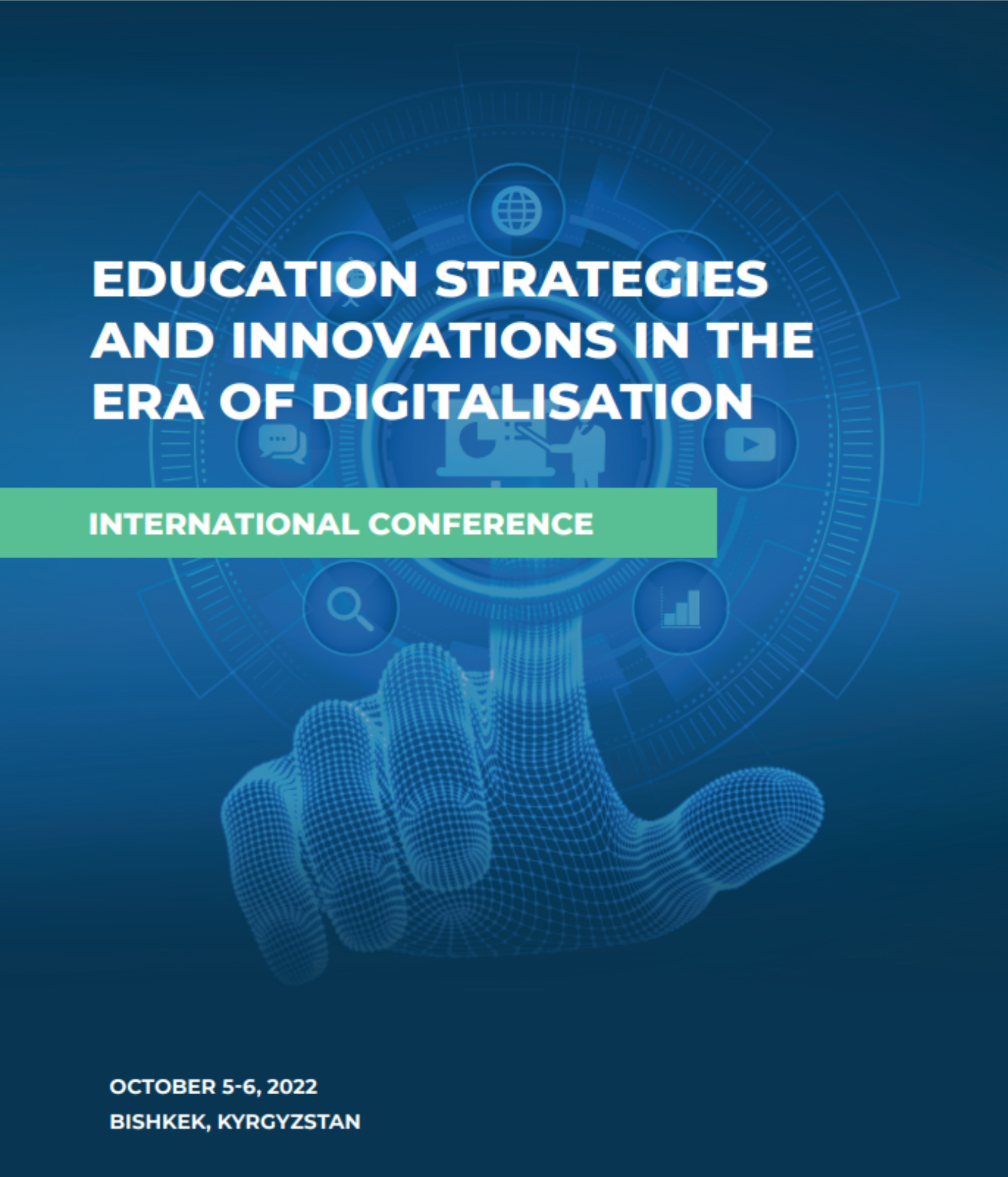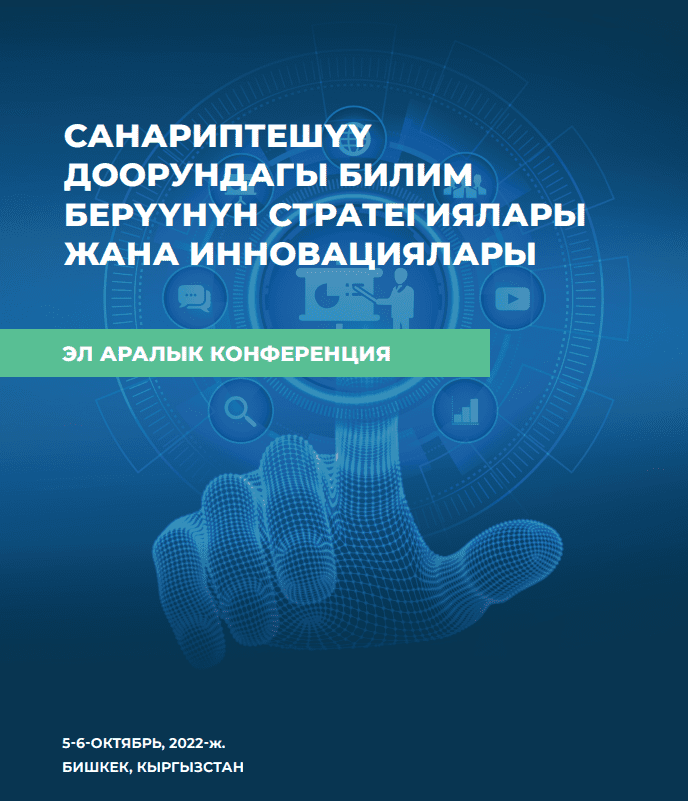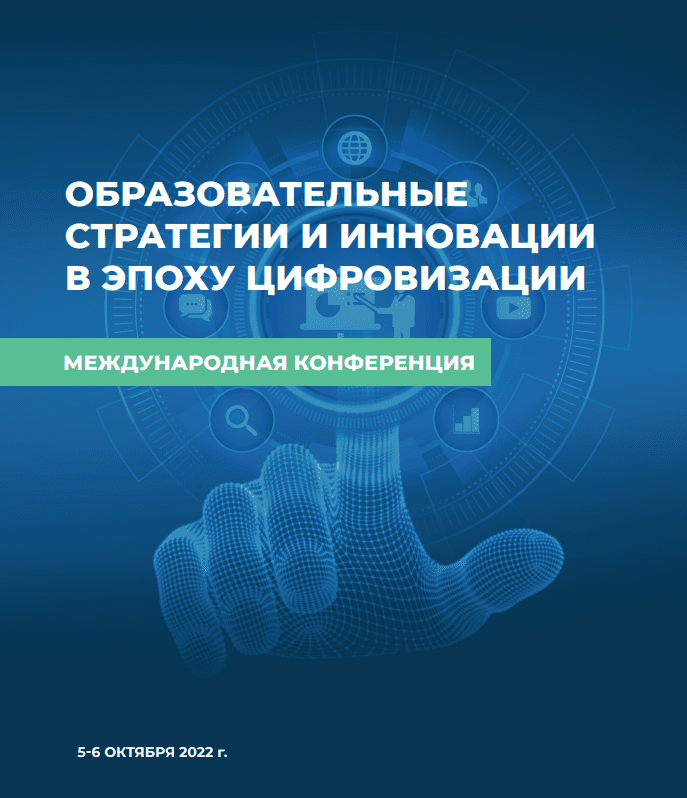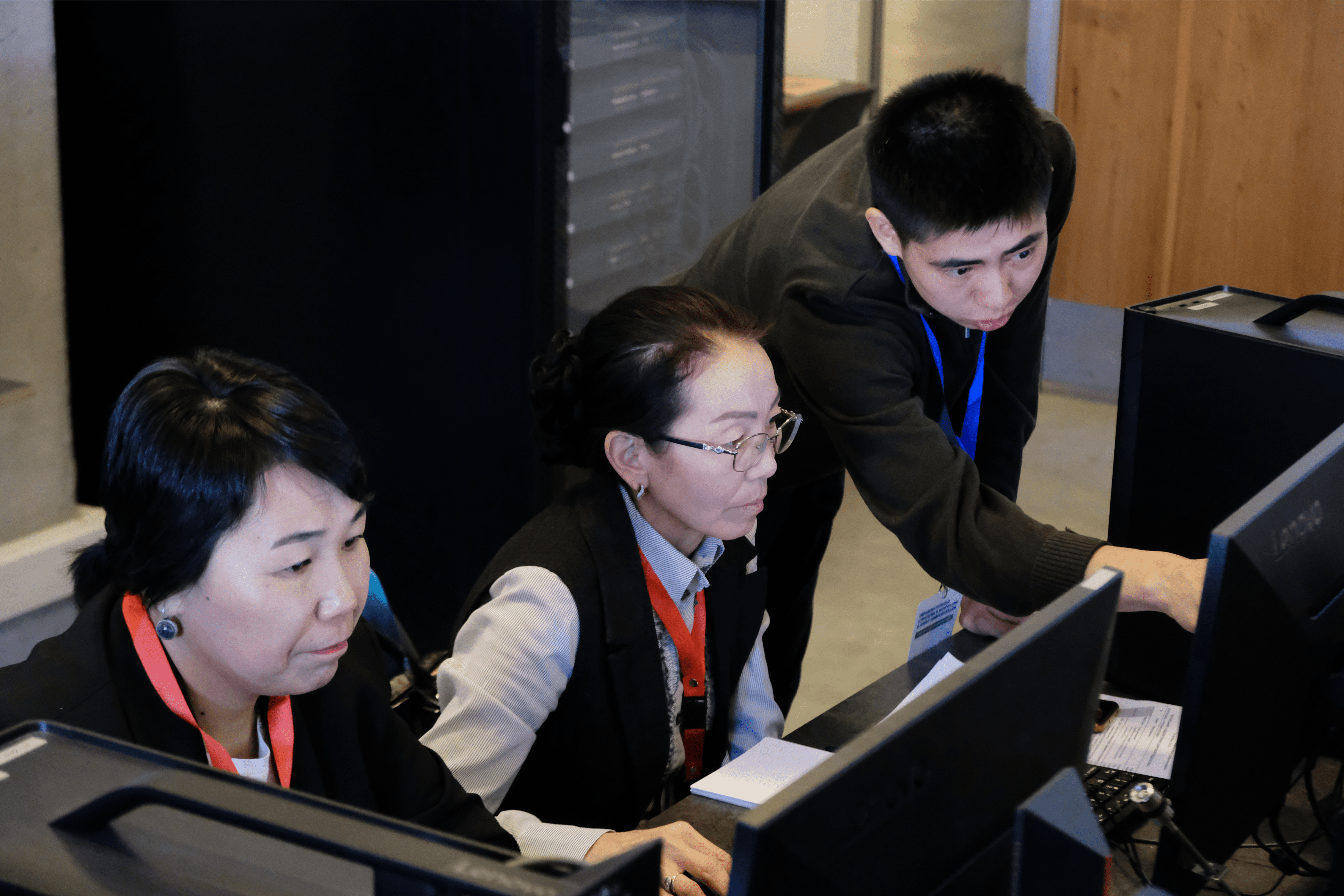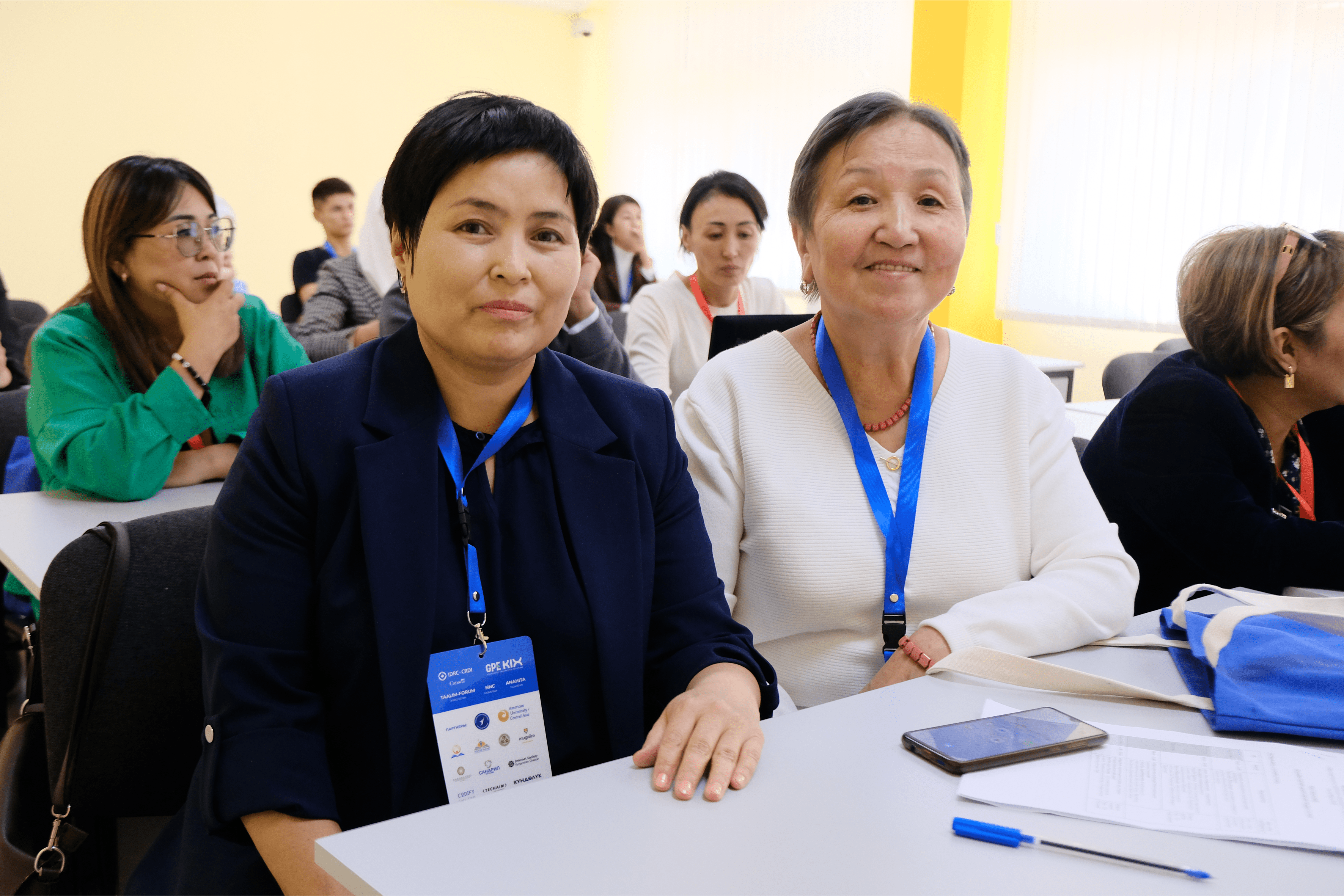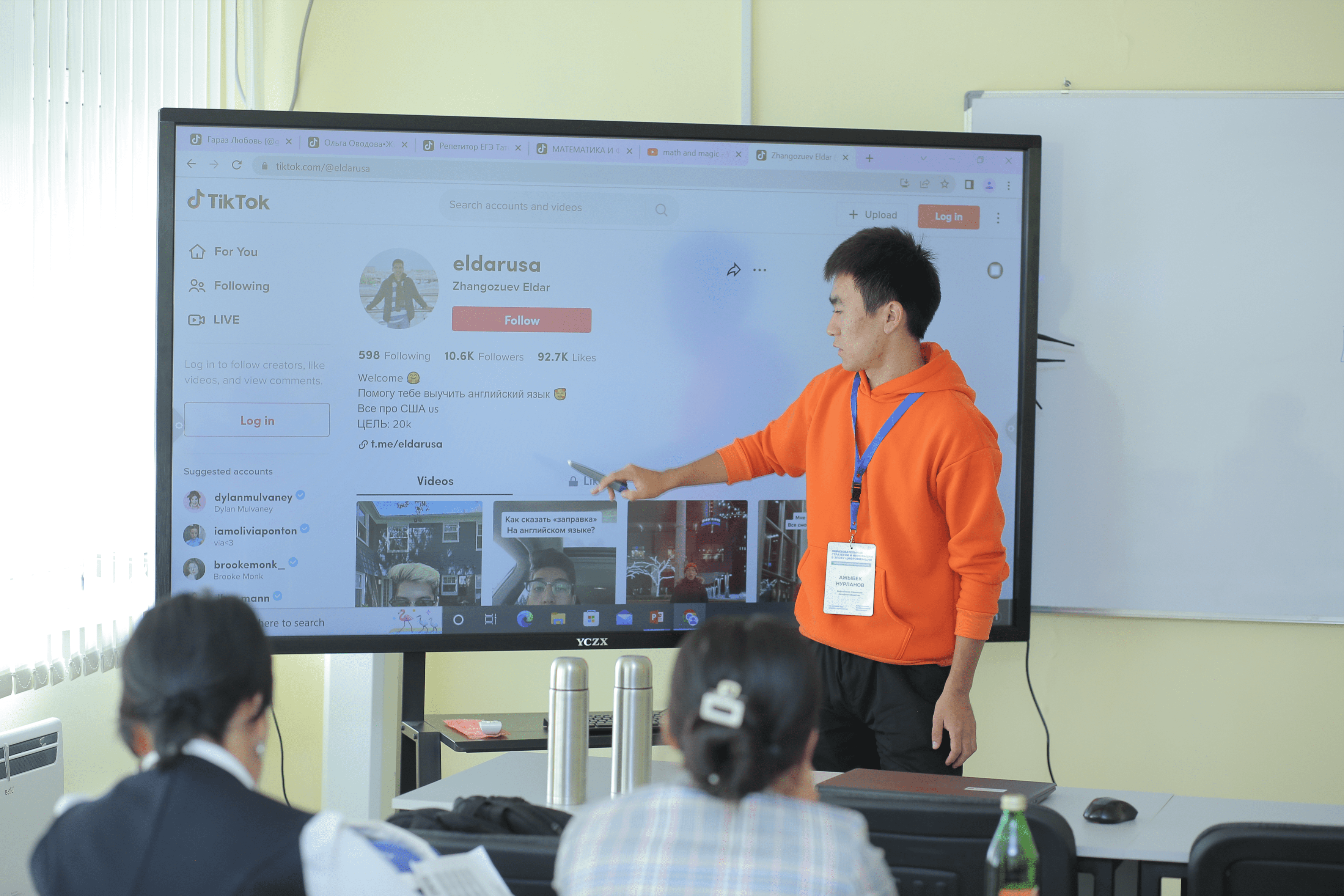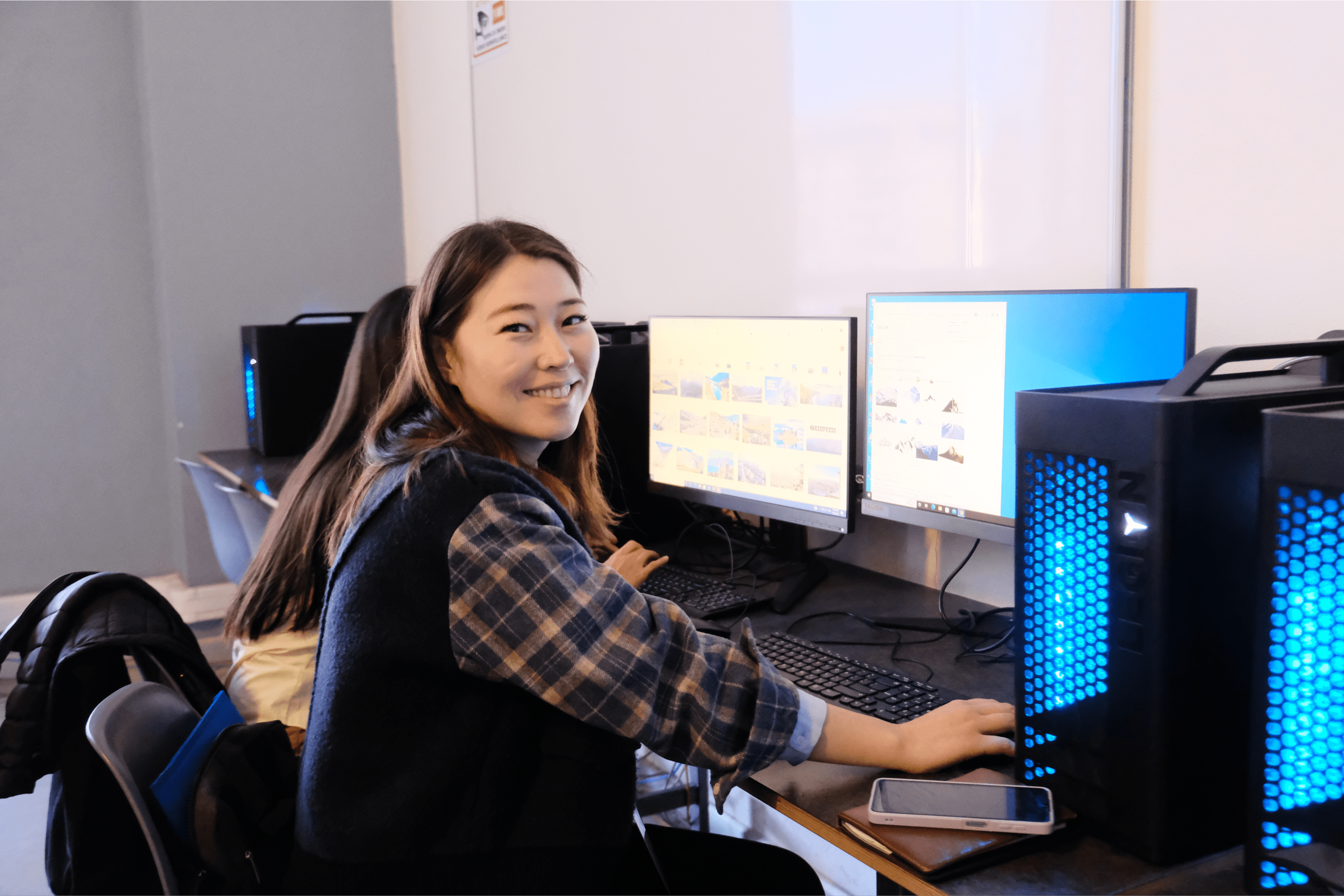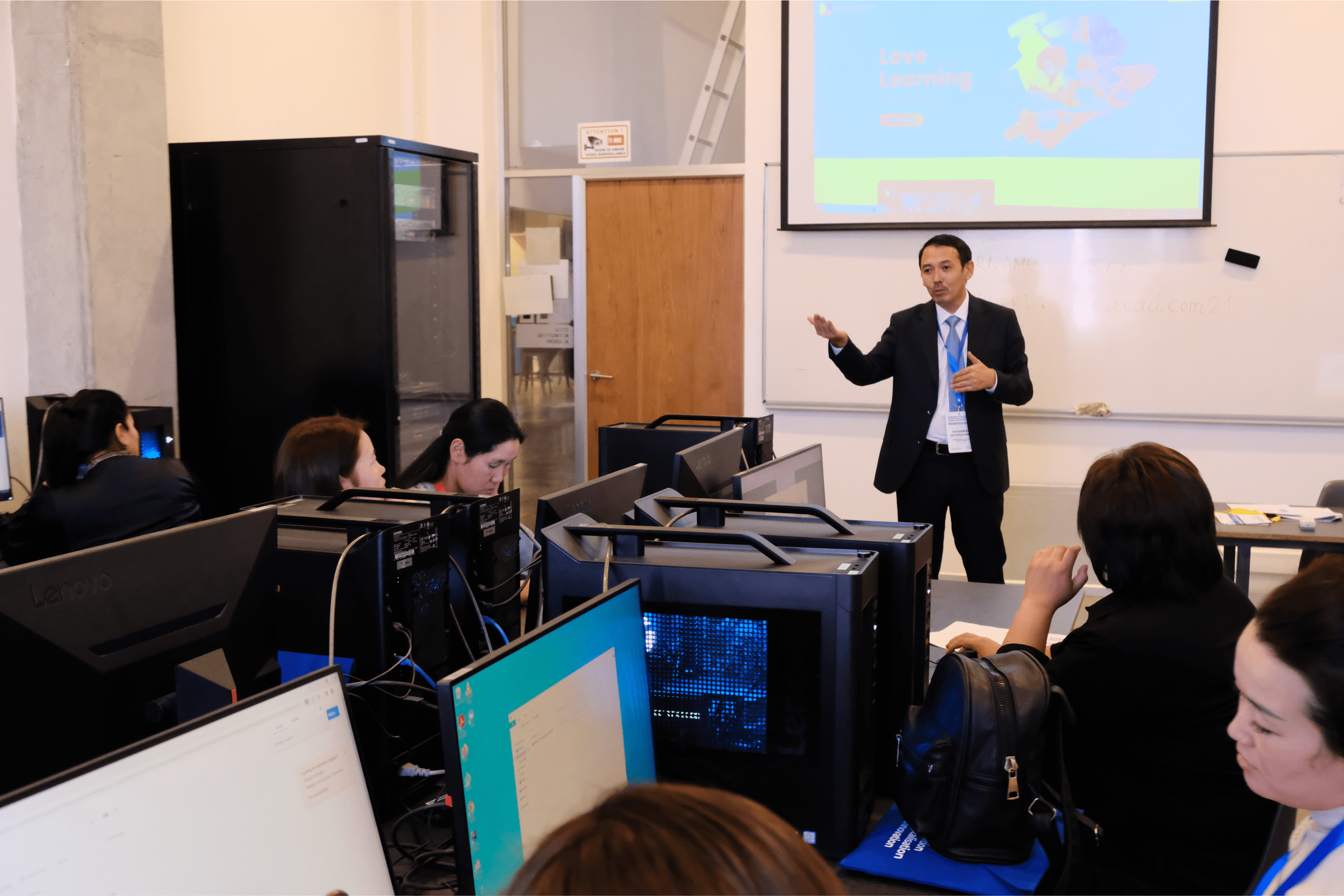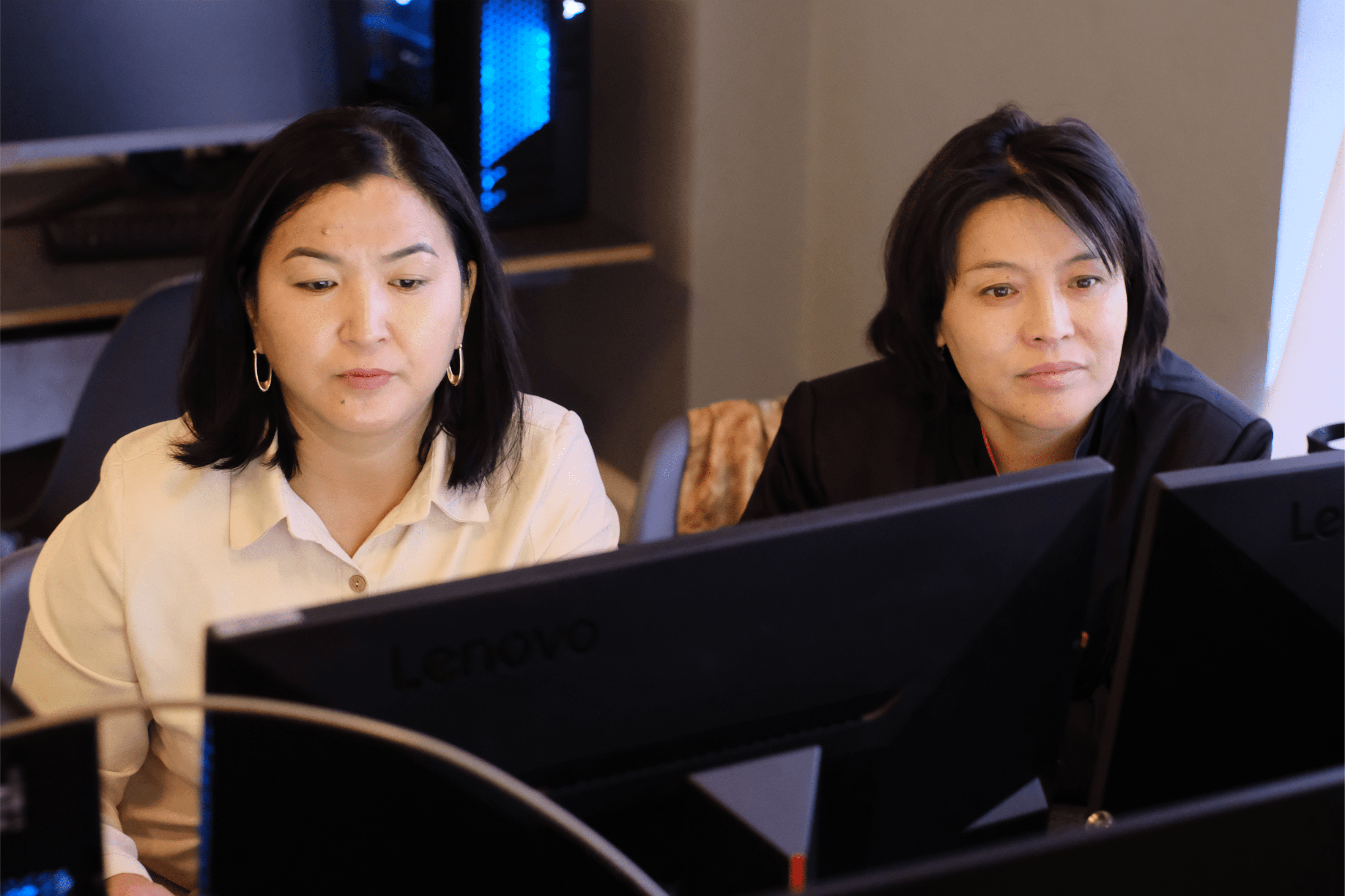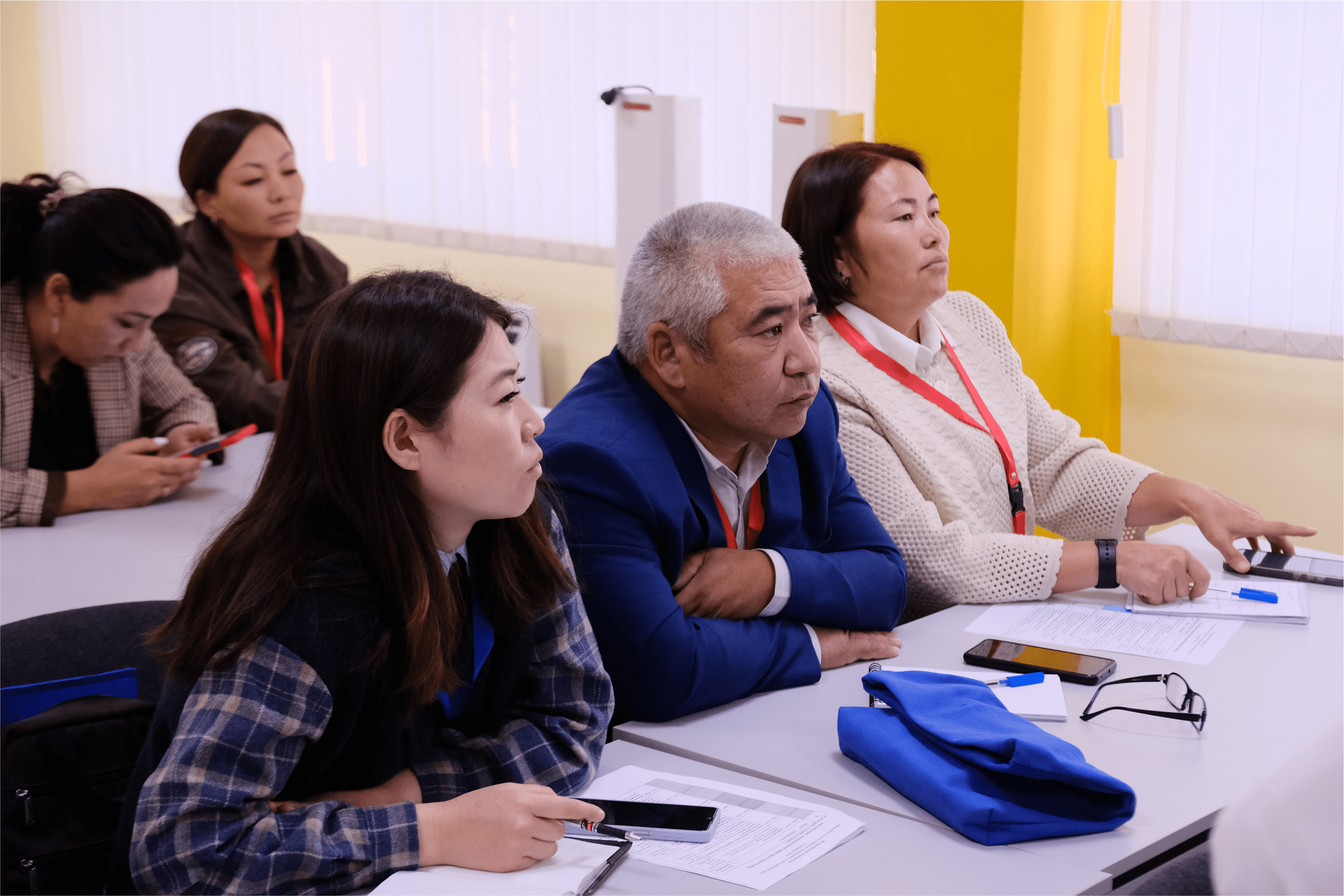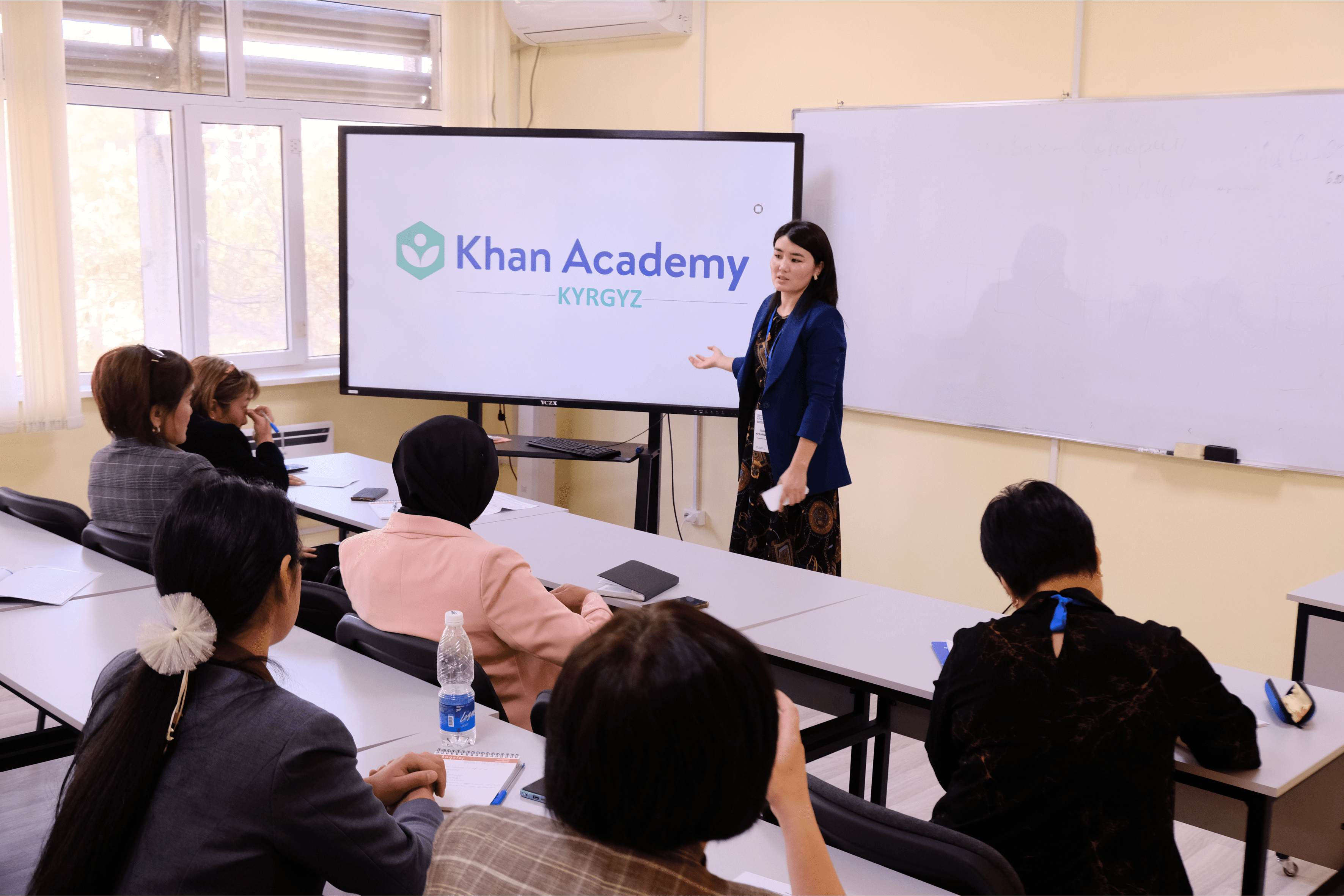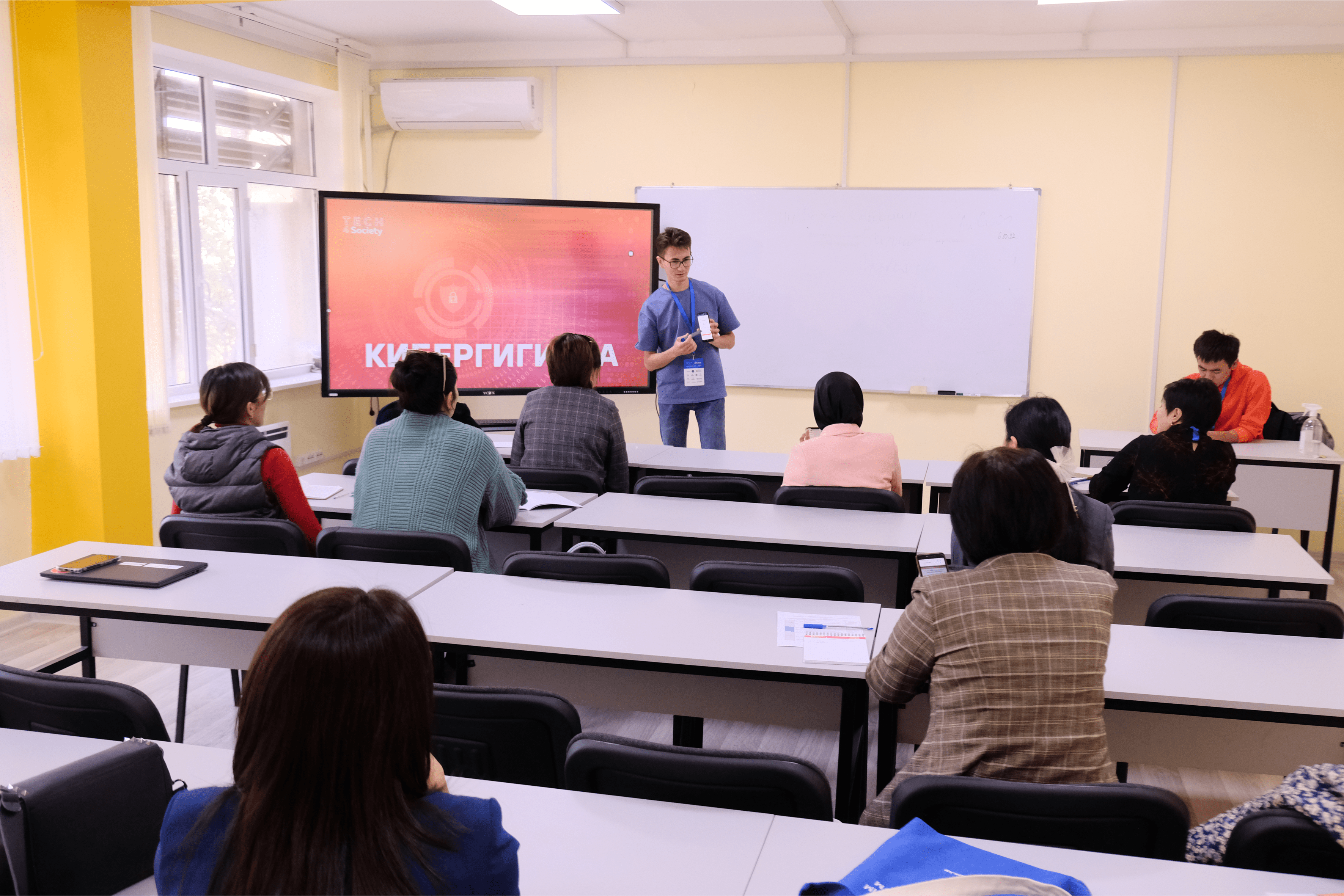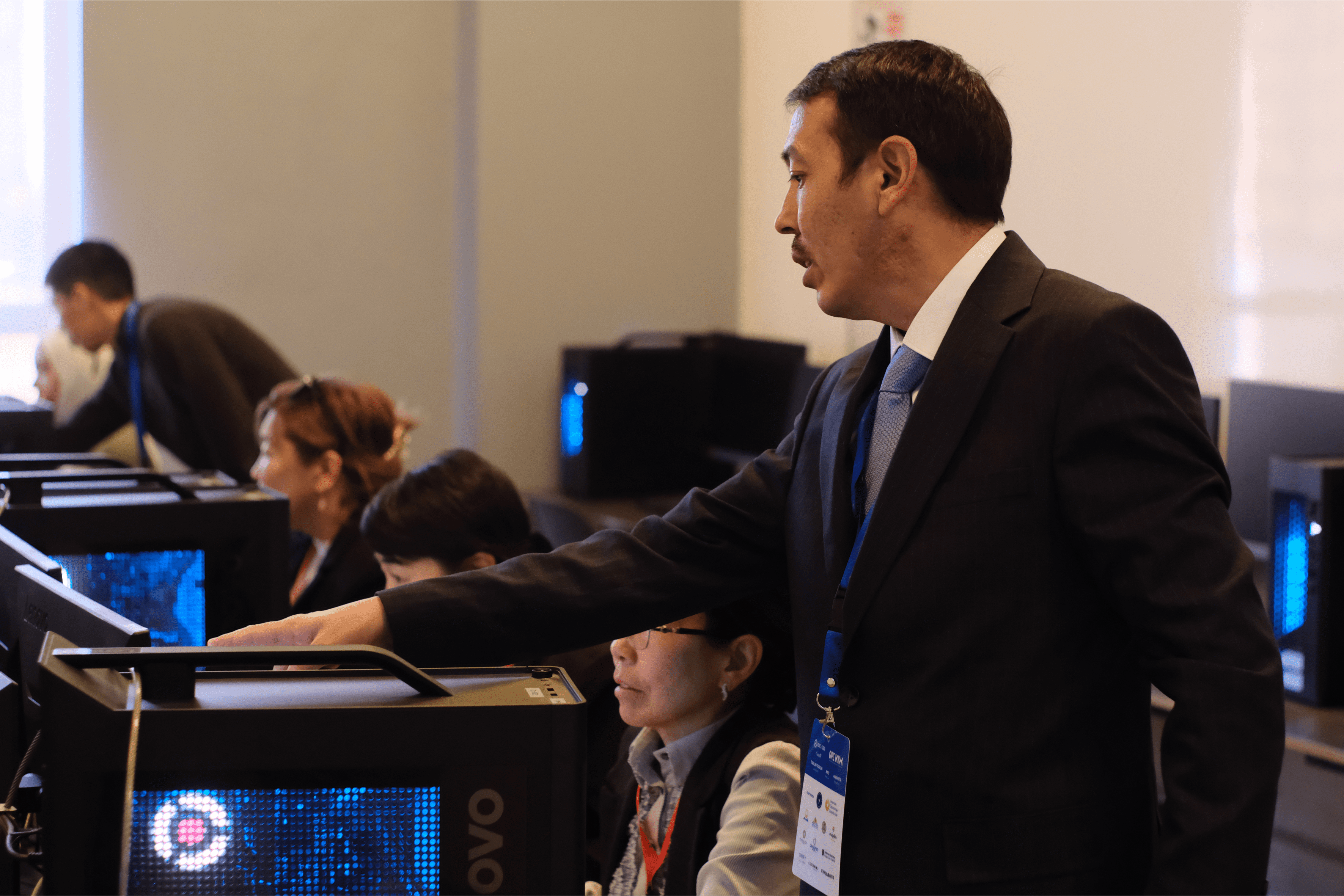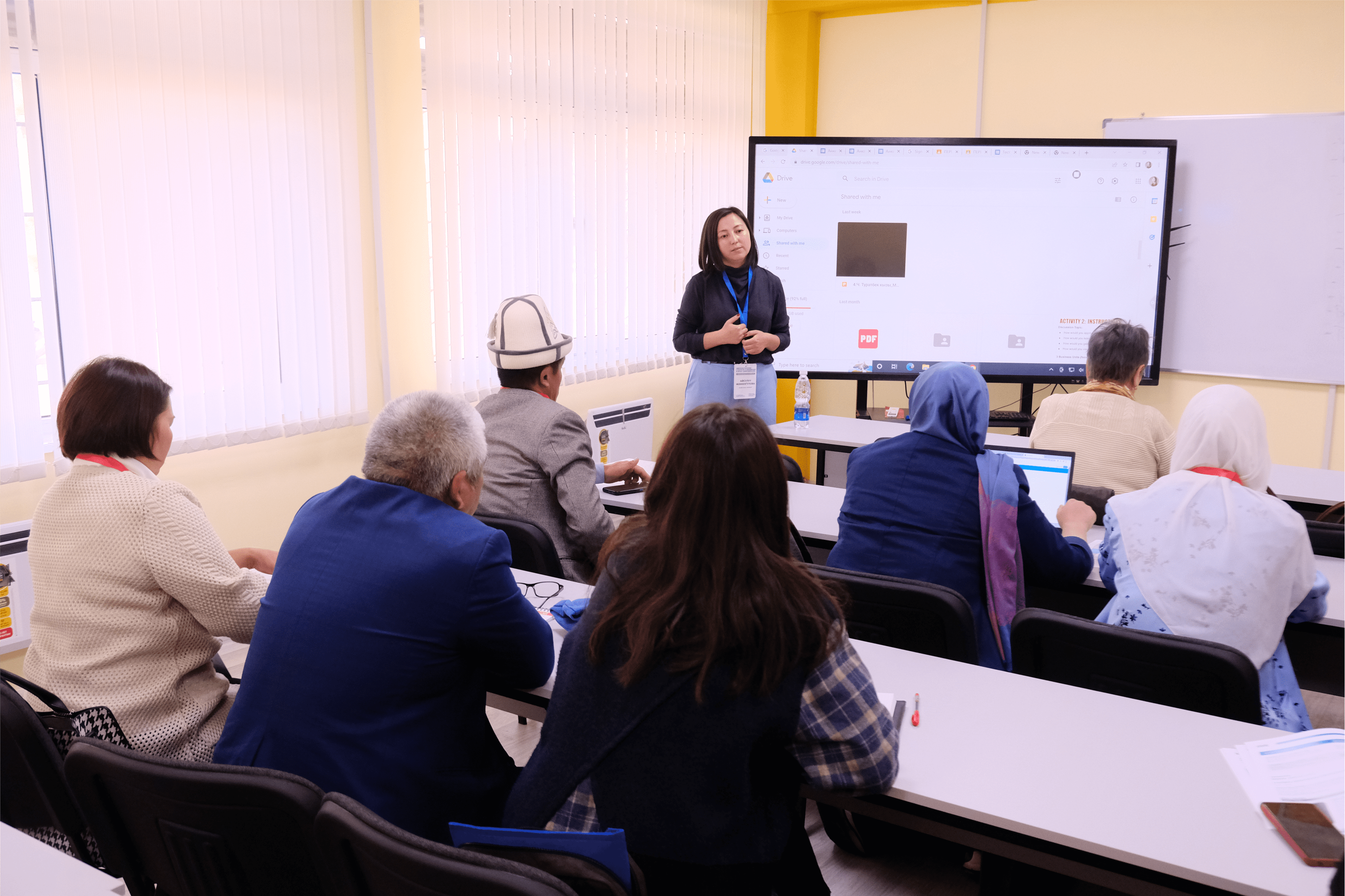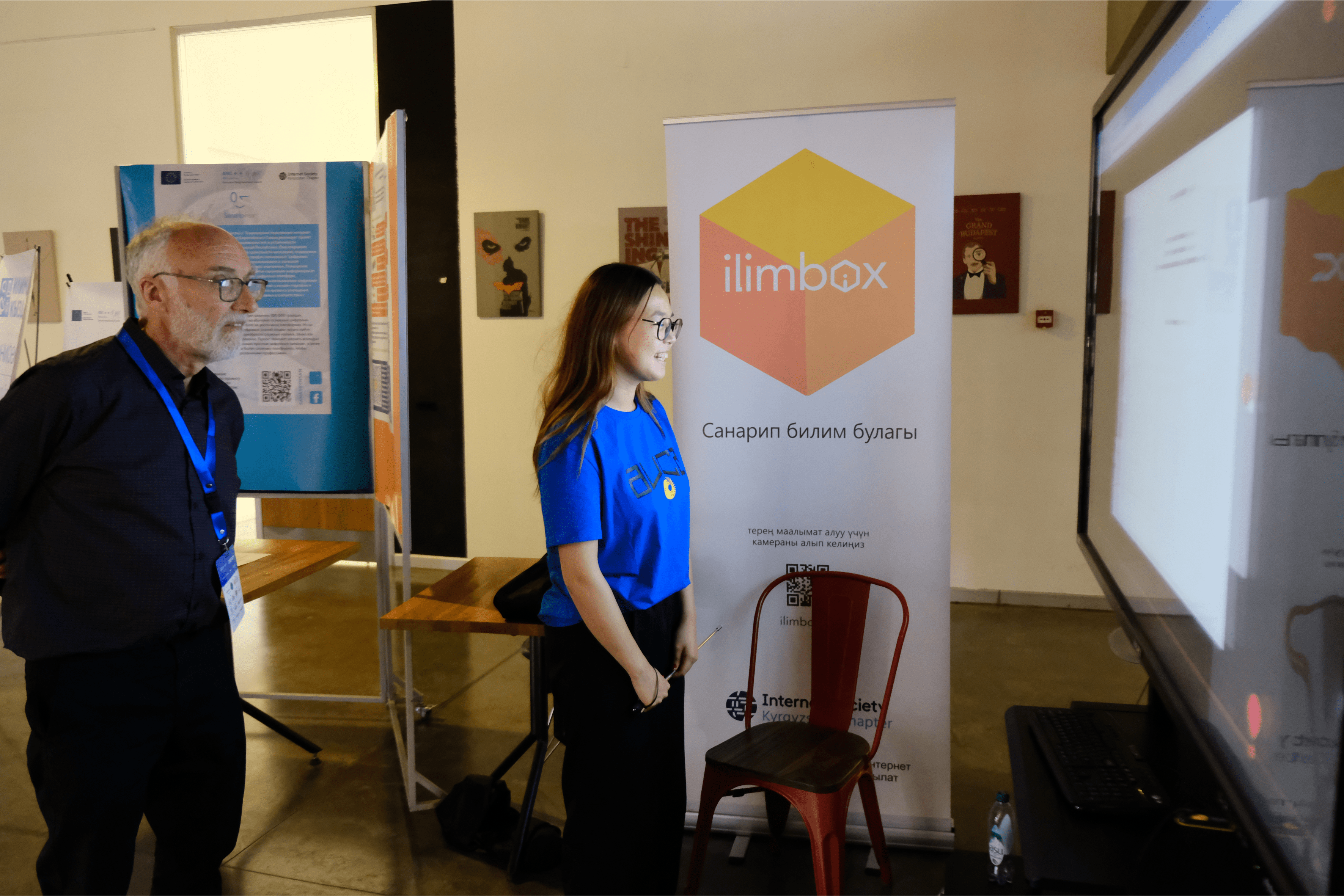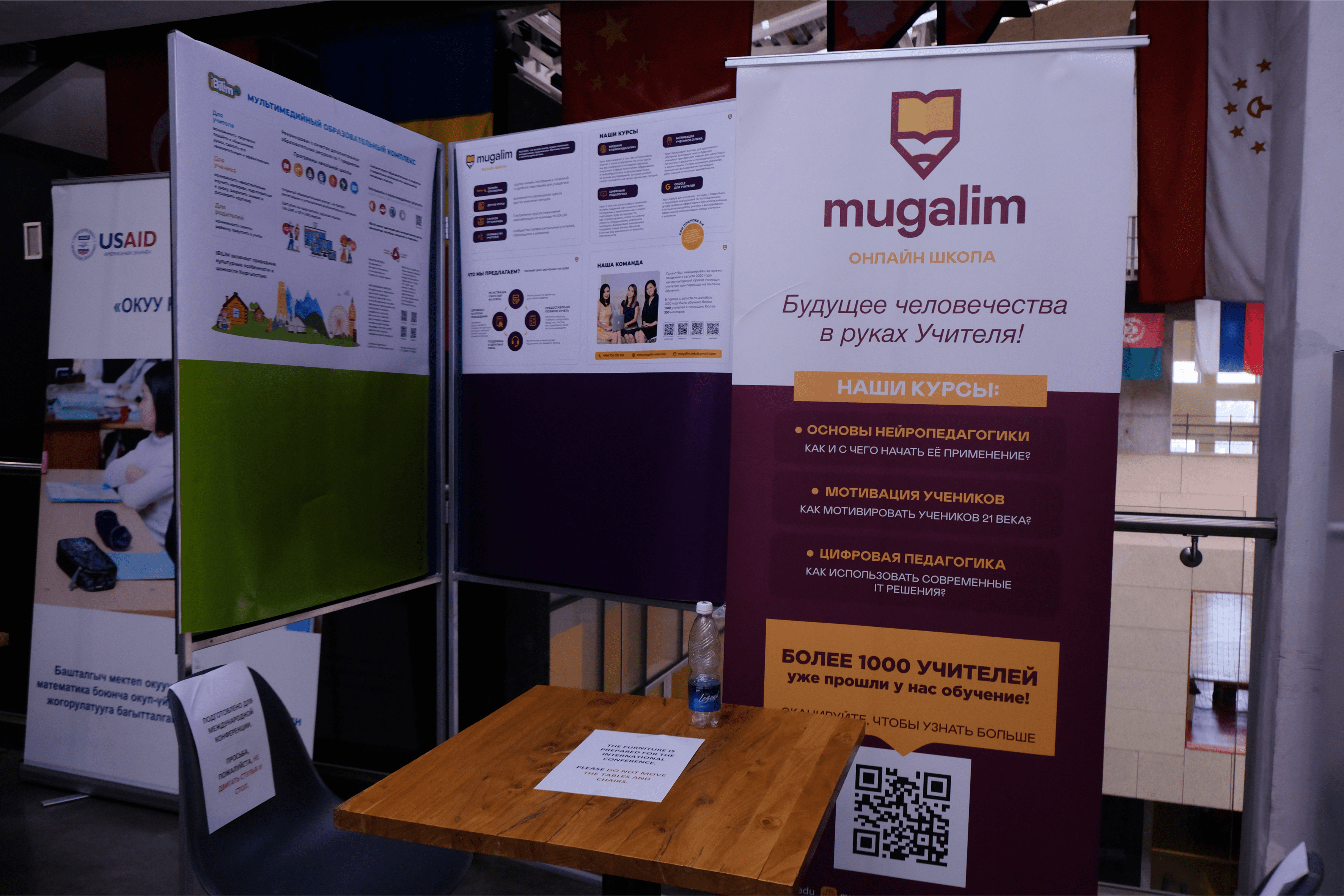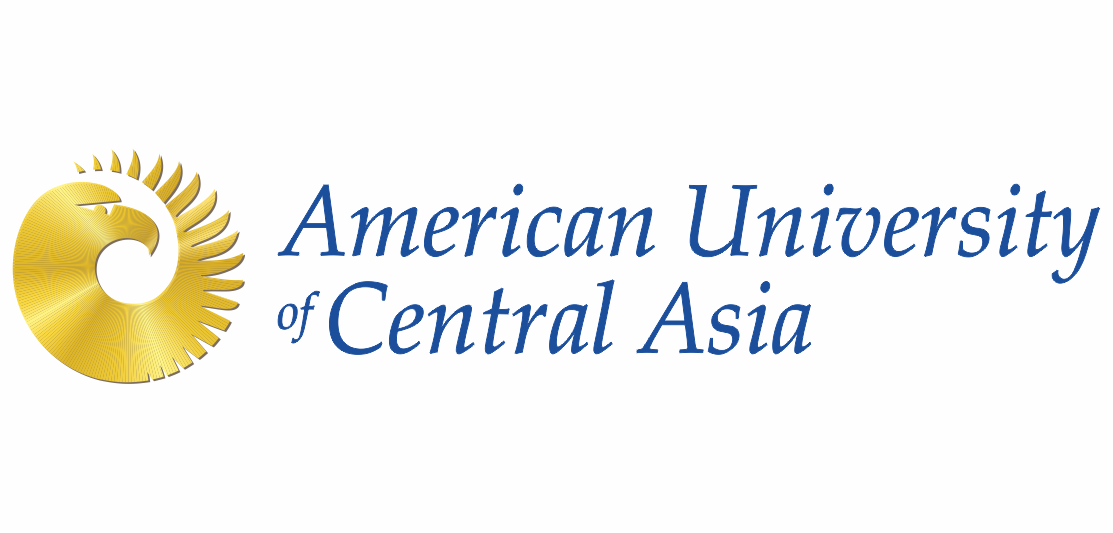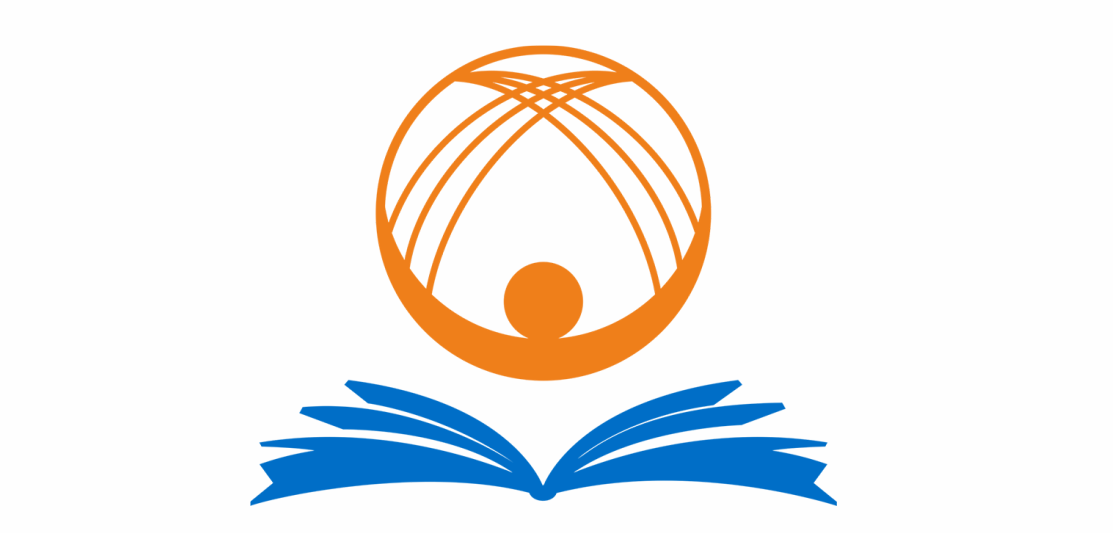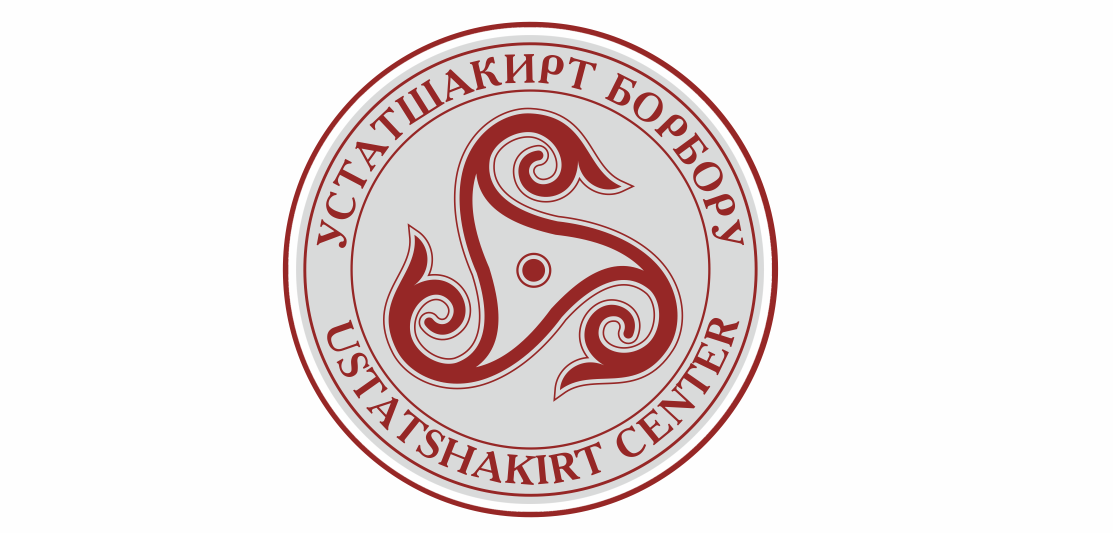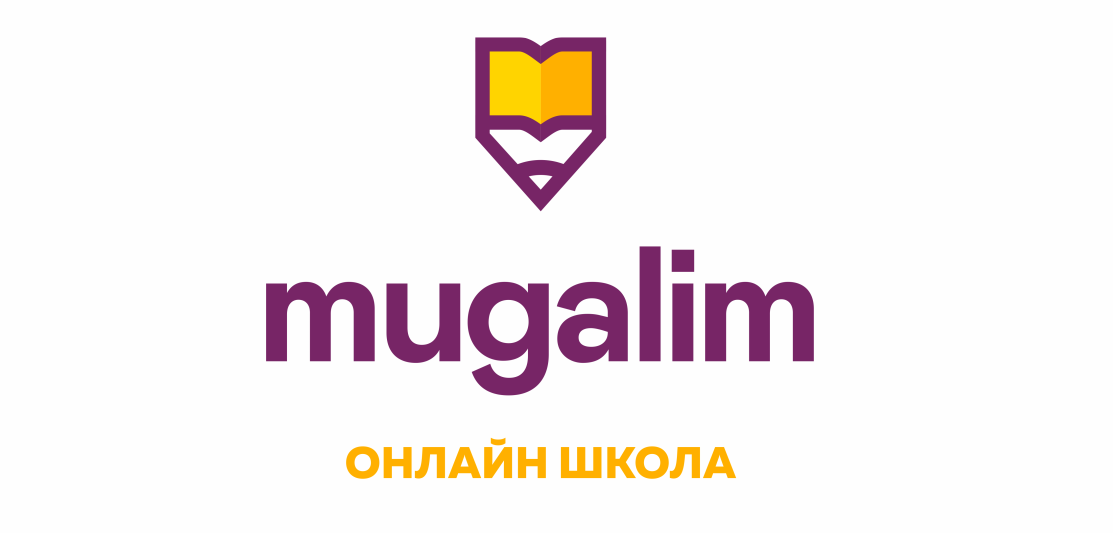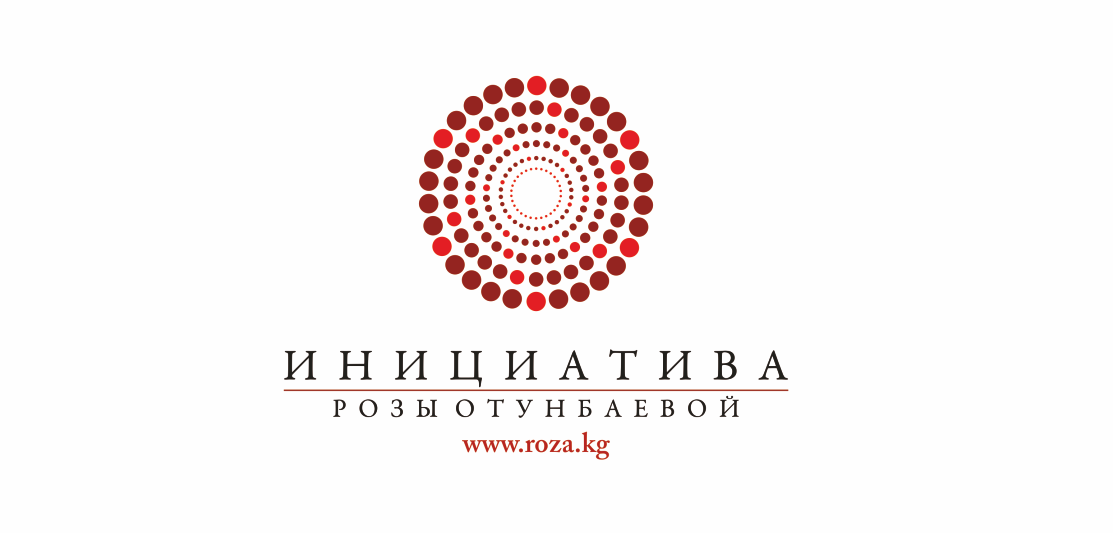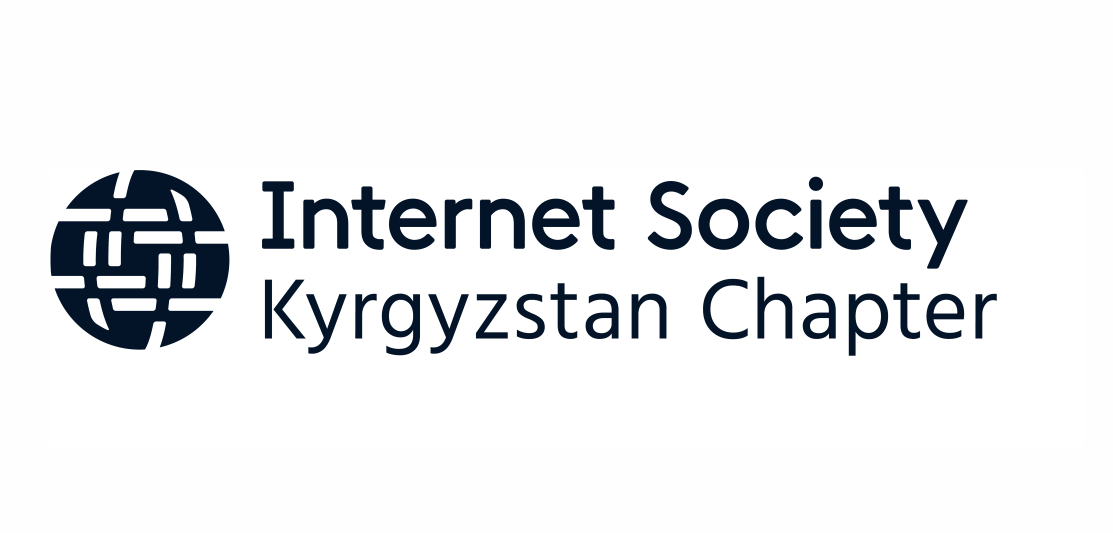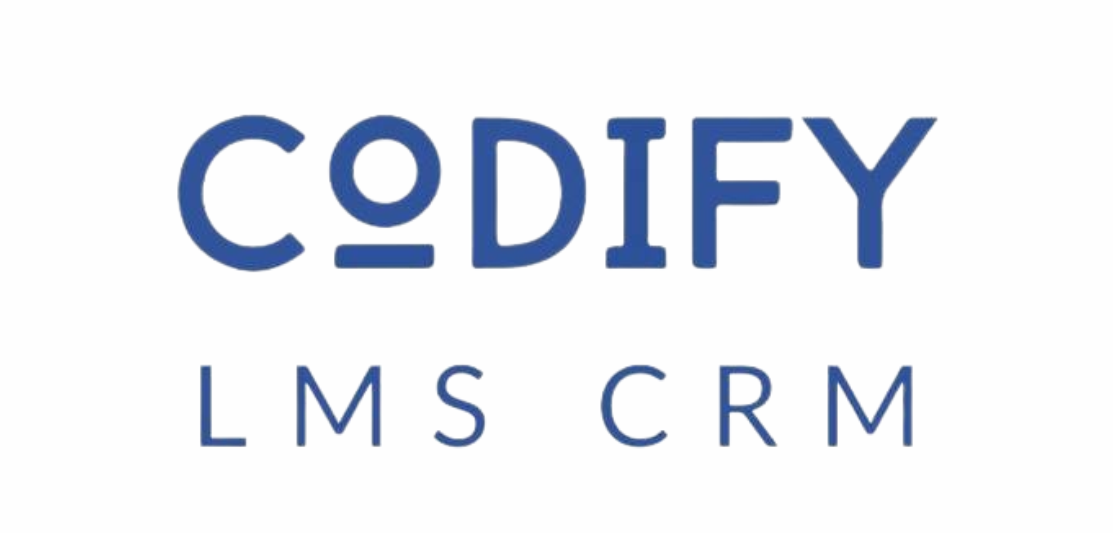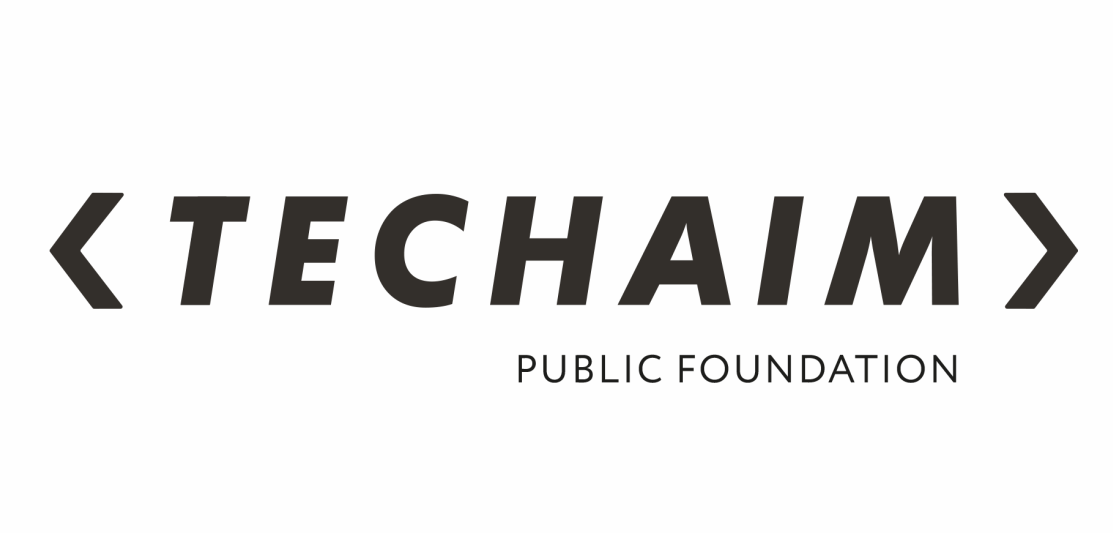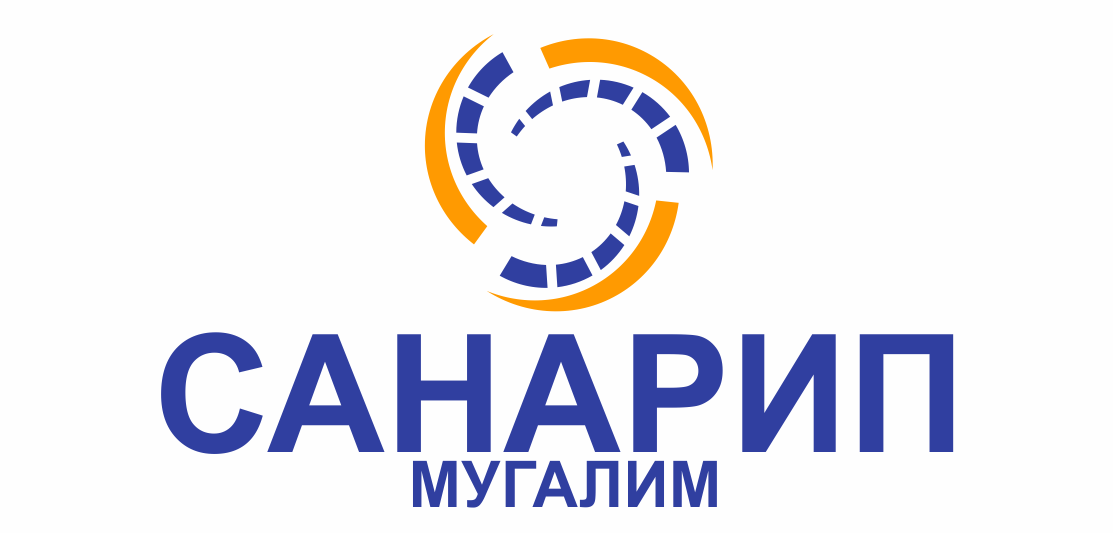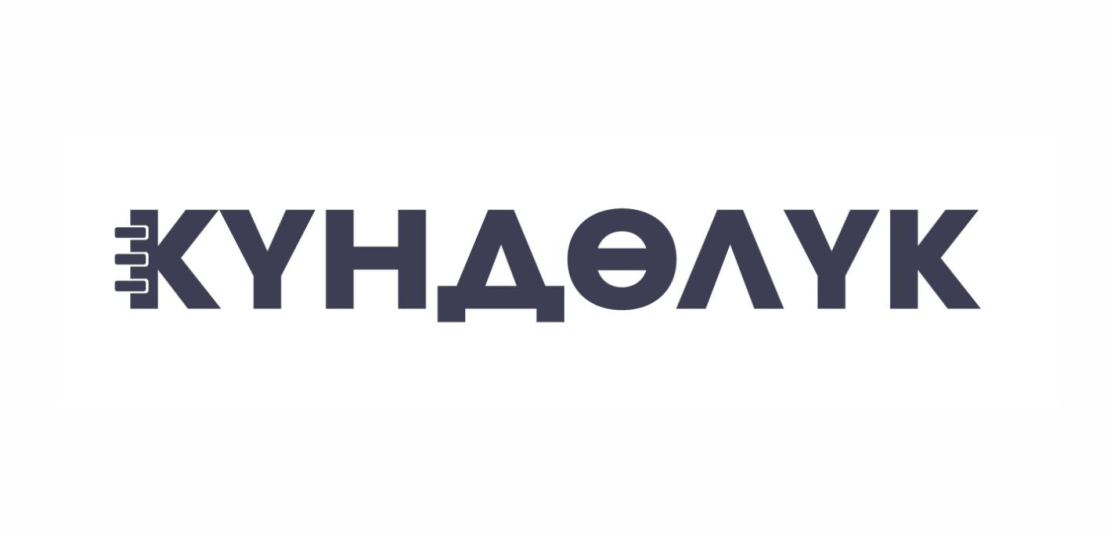On October 4-6, 2022, Bishkek hosted the International Conference "Educational Strategies and Innovations in the Era of Digitalization", organized by the "Taalim-Forum" Public Foundation, in partnership with the Ministry of Education and Science of the Kyrgyz Republic and the American University of Central Asia.
The conference became a platform for expanding professional dialogue on a wide range of issues related to digitalization in education, sharing knowledge and experience in the use and implementation of innovative approaches, distance learning technologies to address pressing issues in national education systems, identifying new opportunities, strategies and tools to ensure equitable access and improve the quality of education.
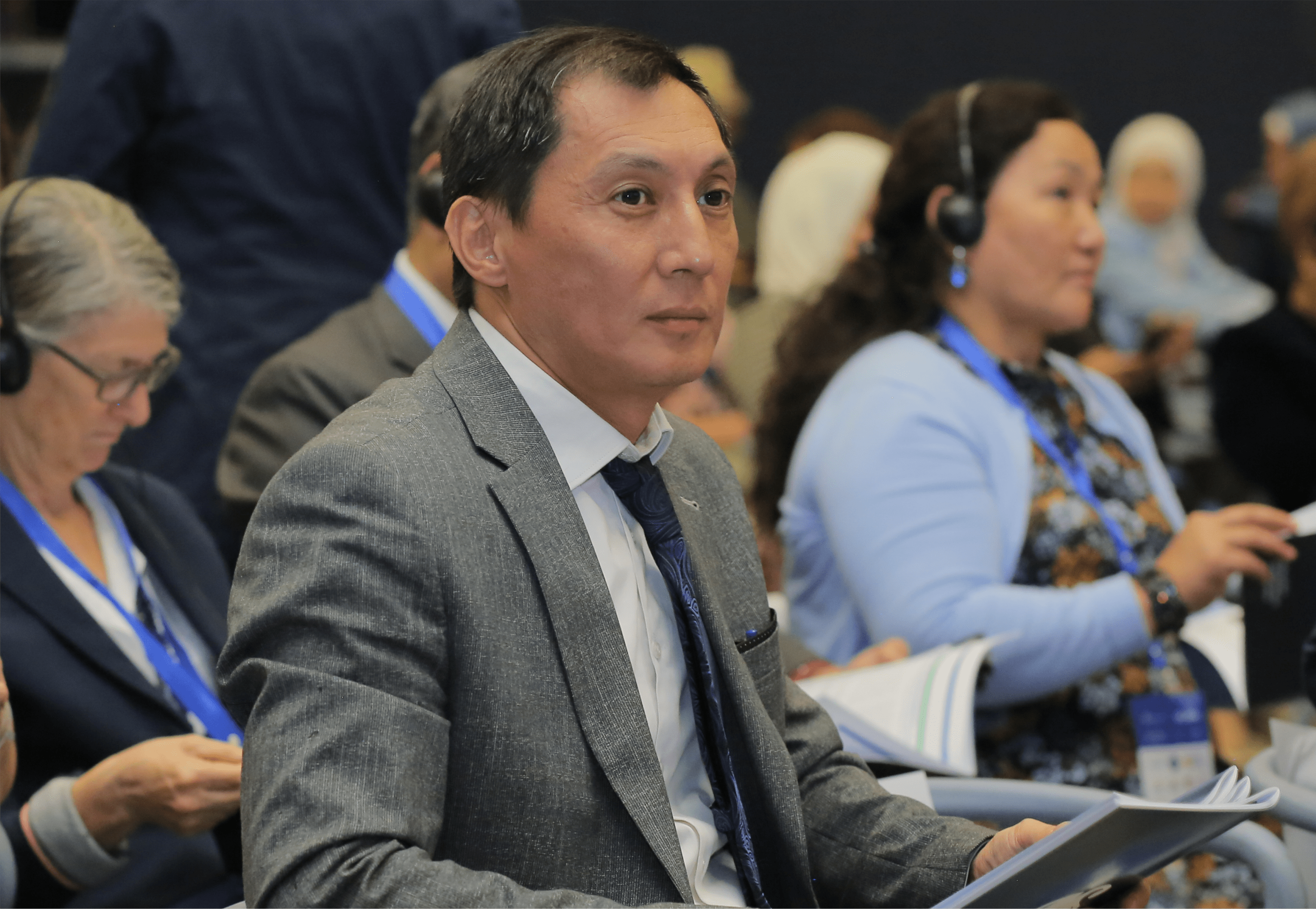
The education system in Kyrgyzstan sets the goals aimed at solving urgent problems and integrating into the global educational space. One of the priority areas of the Ministry of Education and Science is the digital transformation of the education system in the country aimed at introducing digital technologies to improve the quality of the educational process, and expanding access to information. The forced closure of schools during the COVID-19 pandemic has complicated the situation in education, but at the same time, has opened up opportunities for the development of learning using digital technologies.
Today, we are working hard on digital transformation and creating a digital education ecosystem in the country. We understand that the world is changing rapidly, we need to respond adequately to today's challenges and make timely decisions. Only with you, colleagues - teachers, educators, parents, researchers, experts - can we bring about positive change and develop the education system and our country as a whole!
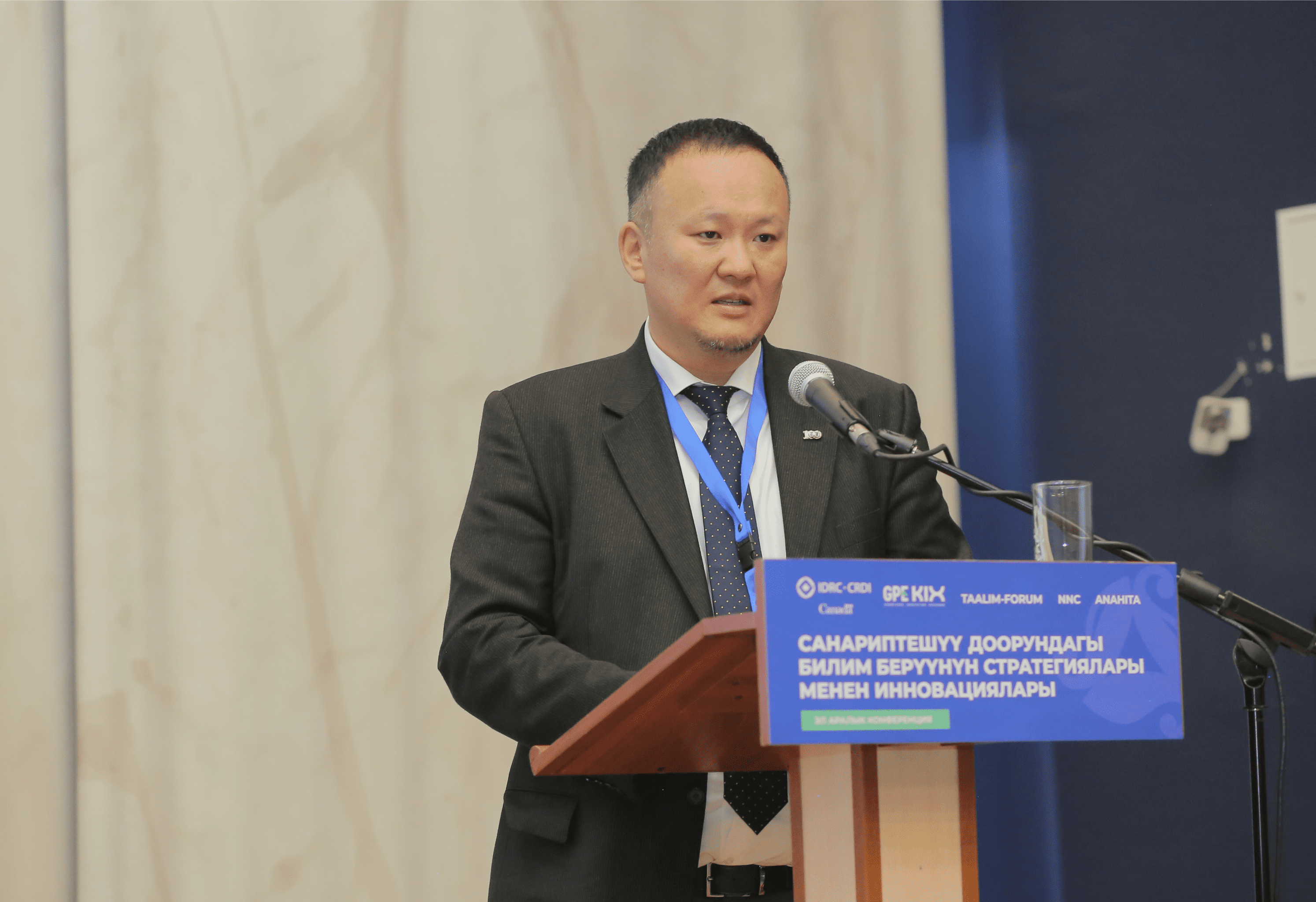
At the last 97th session of the UN General Assembly, Mongolia was recognized as one of the leading countries in the digital transformation in education. Work in this direction began long before today, and has accelerated in the past two years. Our Center for Information Technology in Education was established during COVID-19 in 2020. In 2015 we started developing the Mongolian educational platform medle.mn We could have ordered content from organizations by issuing a tender, but we decided that it would not be interesting for students. The digital content of this platform is created by our Mongolian teachers. The best materials are selected on a competitive basis, which meet all the requirements of the curriculum. On this platform we have gathered everything that both students and teachers need, everything they need for lifelong learning.
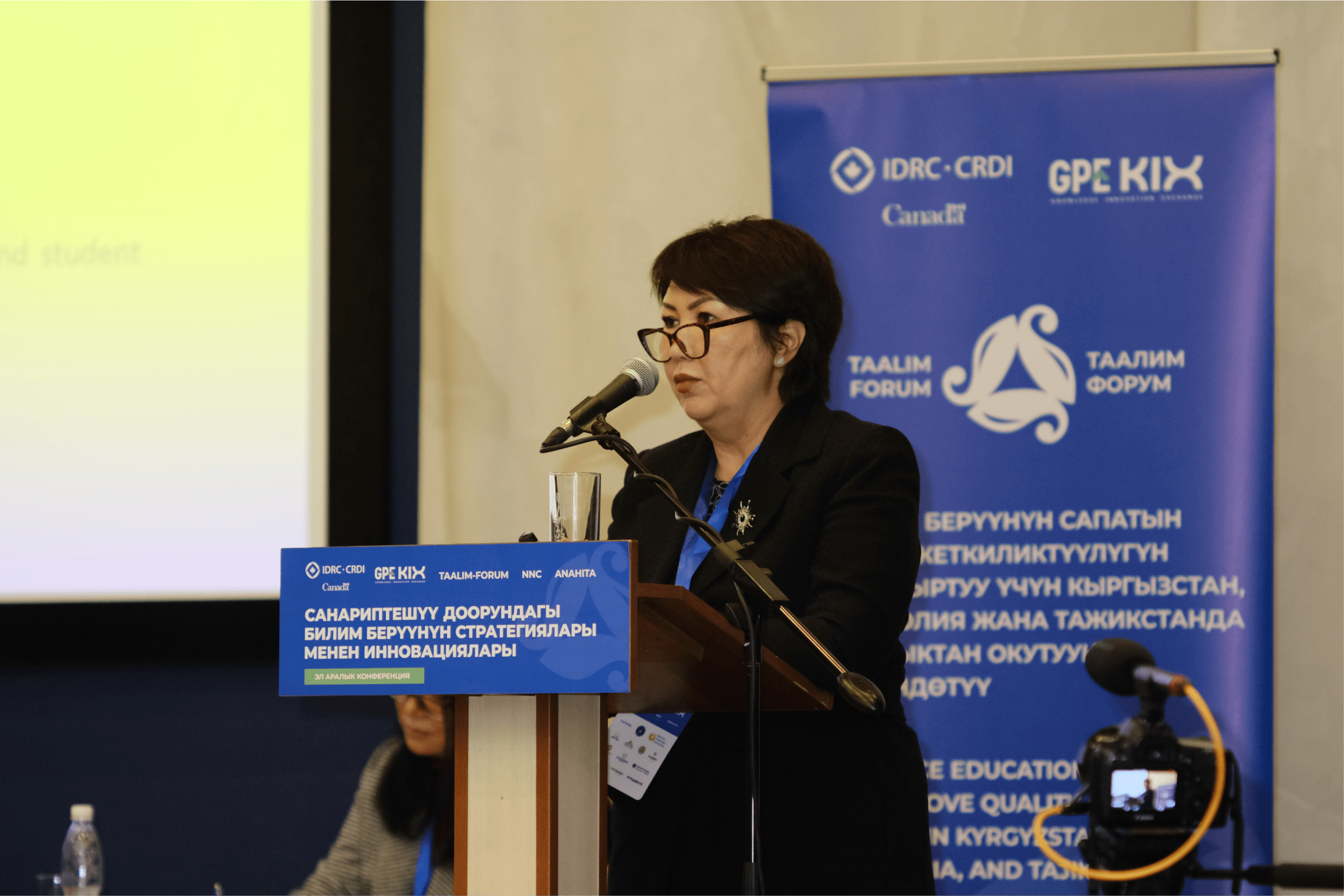
The conference is very professional and expert level, because it brought together people who, indeed, deeply understand the issues of educational innovation. I think that such a conference is necessary in order to at least break patterns in the minds of experts and professionals. Time demands a revision of conceptual approaches to the professional development of teachers.
At the conference, I shared a presentation on the issue of raising the status of the teacher. In particular, how after the adoption of the Law on the Status of a Teacher, approaches and content of courses for continuous professional development of teachers in Kazakhstan are updated.
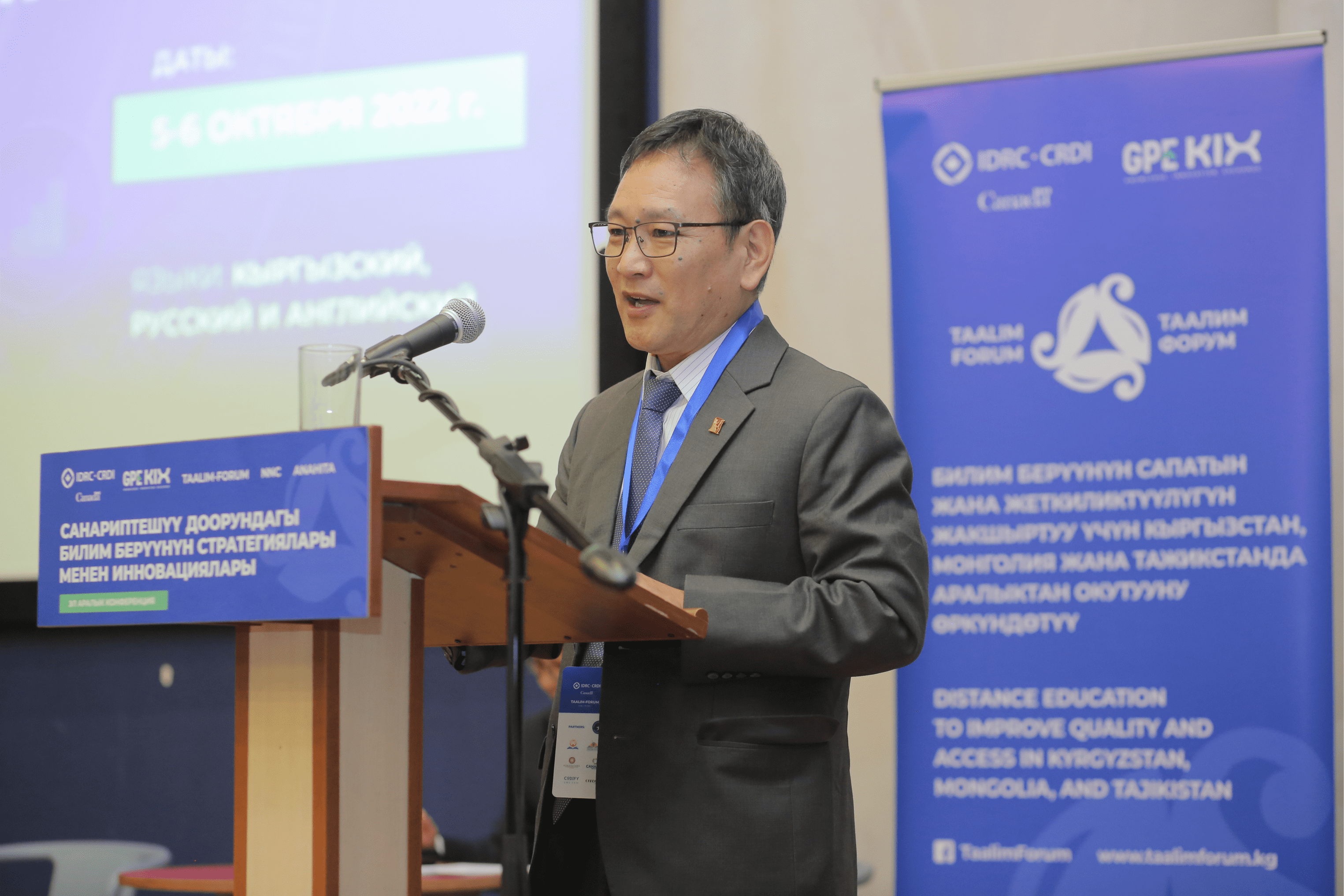
In 2019, GPE and IDRC launched a joint activity called Knowledge and Innovation Exchange (KIX) to
strengthen the education system in GPE partner countries around the world. The main goals of KIX are to generate new knowledge and evidence in the field of education, to mobilize it, and to strengthen the capacity to apply it. To this end, we use two mechanisms: funding for applied research projects and knowledge-sharing mechanisms in the form of regional centers. In total, KIX funds about forty grant projects worldwide, two of which include the Kyrgyz Republic. We are proud to note that the Taalim-Forum Foundation, the main organizer of this conference, is a KIX grantee and is leading a project on innovation in distance education in Kyrgyzstan, Tajikistan, and Mongolia. Two other projects in Kyrgyzstan focus on early childhood education and the use of data to improve equity and inclusion in education.
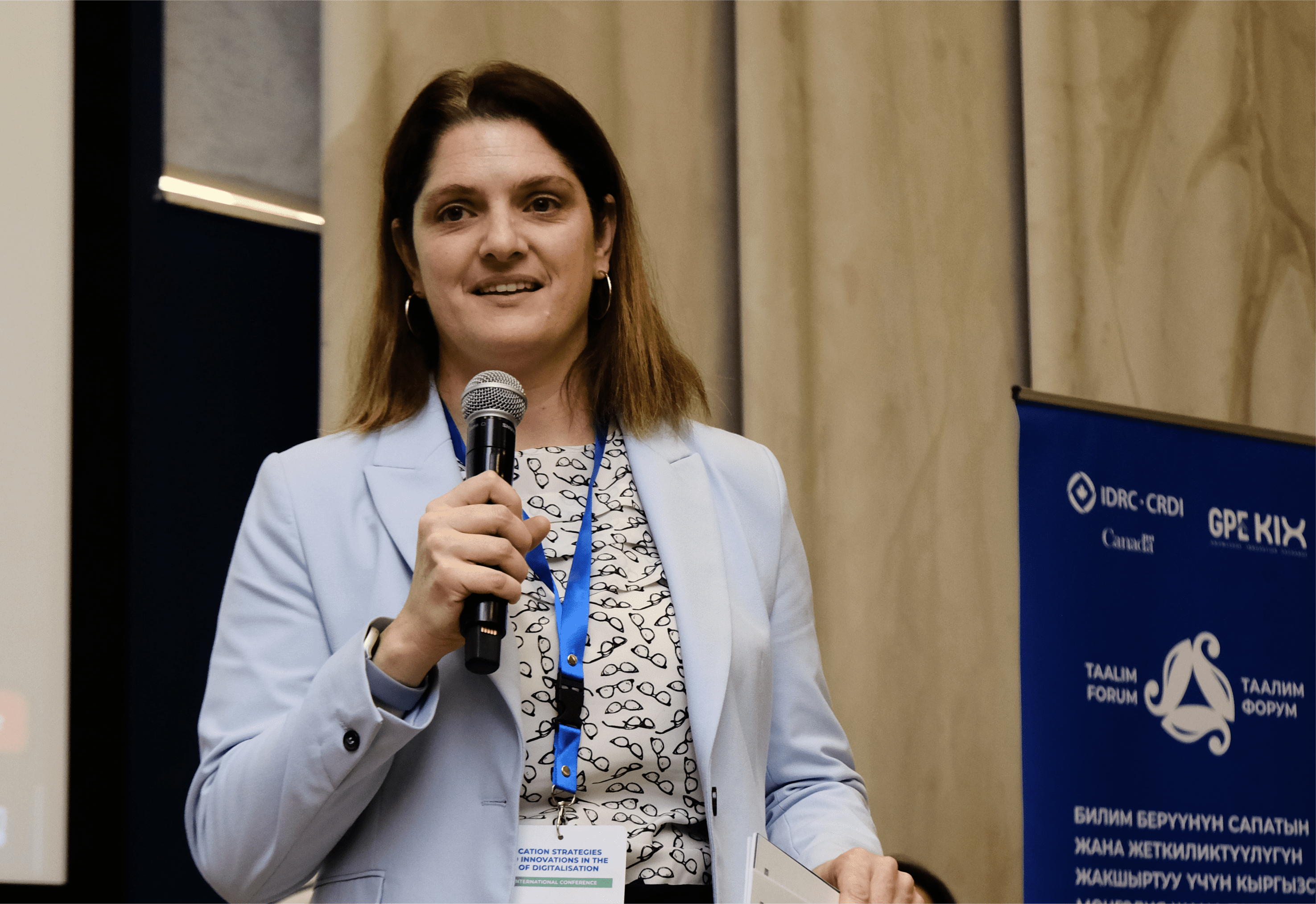
The conference presented an excellent opportunity to bring together participants from Kyrgyzstan and many other countries to discuss truly topical issues related to innovations in distance education, in the context of the ongoing COVID-19 pandemic. The right to education, in the perspective of the UN and UNESCO, is the right to quality education. To this end, I think it is important for all of us to work together further, to take into account the lessons learned, research findings, conclusions and recommendations at the policy level that were discussed at this conference. In the resolution of our conference we noted that the right to quality education (SDG 4) is the basis for a life of dignity and sustainable development.
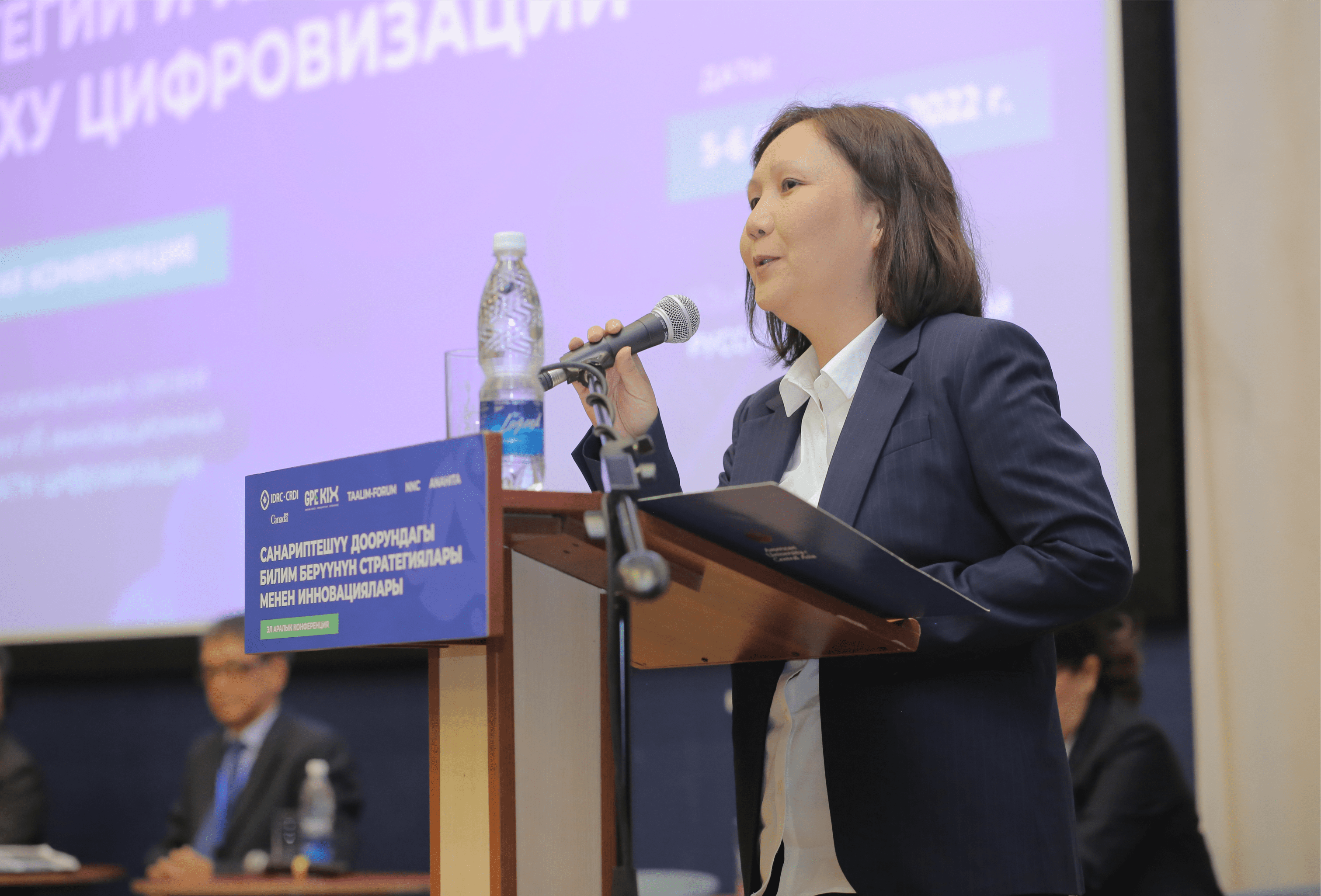
First of all, I would like to thank Taalim-Forum Public Foundation and the Ministry of Education and Science of the Kyrgyz Republic for organizing this important conference, which brings us all together to identify opportunities and develop strategies for using new technologies to address challenges in education. The COVID-19 pandemic has led to unprecedented global educational disruptions and learning losses and has re-emphasized and reinforced cross-country and intercountry disparities in access to quality education. At the same time, the pandemic has forced us to accelerate the development and widespread adoption of educational technology and online learning.
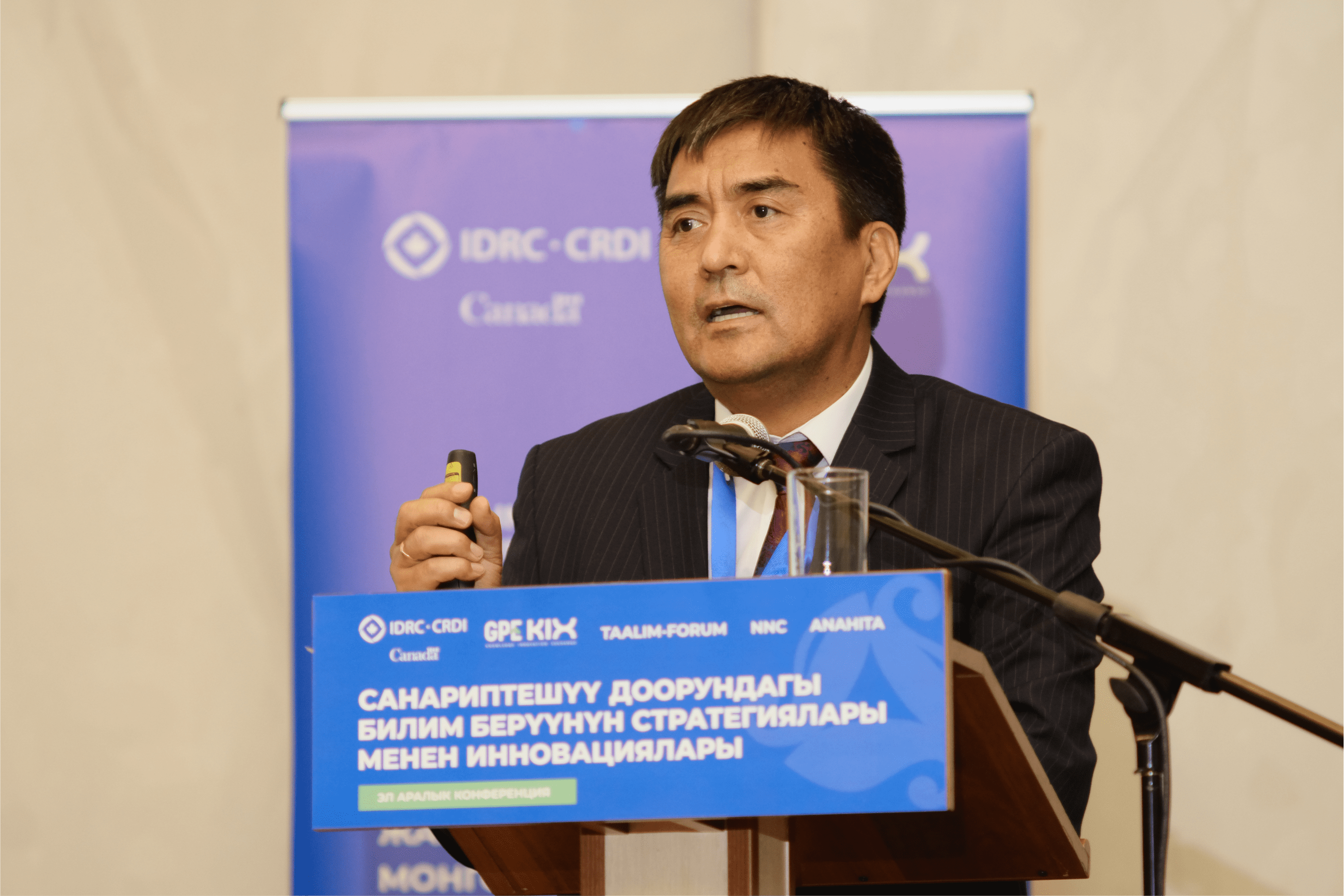
COVID-19 accelerated digitalization, we had an experience with online learning. I was so happy to see that even retired teachers self-learned online tools, so that their students were not left without lessons. And that attitude certainly responds with warmth in the heart. With the help of specialists, modern programs have been introduced into the learning process and video lessons have been created and are available on electronic educational portals. During this time, teachers who work creatively began to get noticed. Parents have become more appreciative of teachers. Great educational initiatives have also been introduced during this time. There are wonderful discussions at this conference about what we can learn from this experience and what aspects we can reinforce to goforward. The best part is that professionals get to know each other and share information and experiences. After this conference, I think that teachers, educators, and experts will continue to contribute to education with like-minded people.
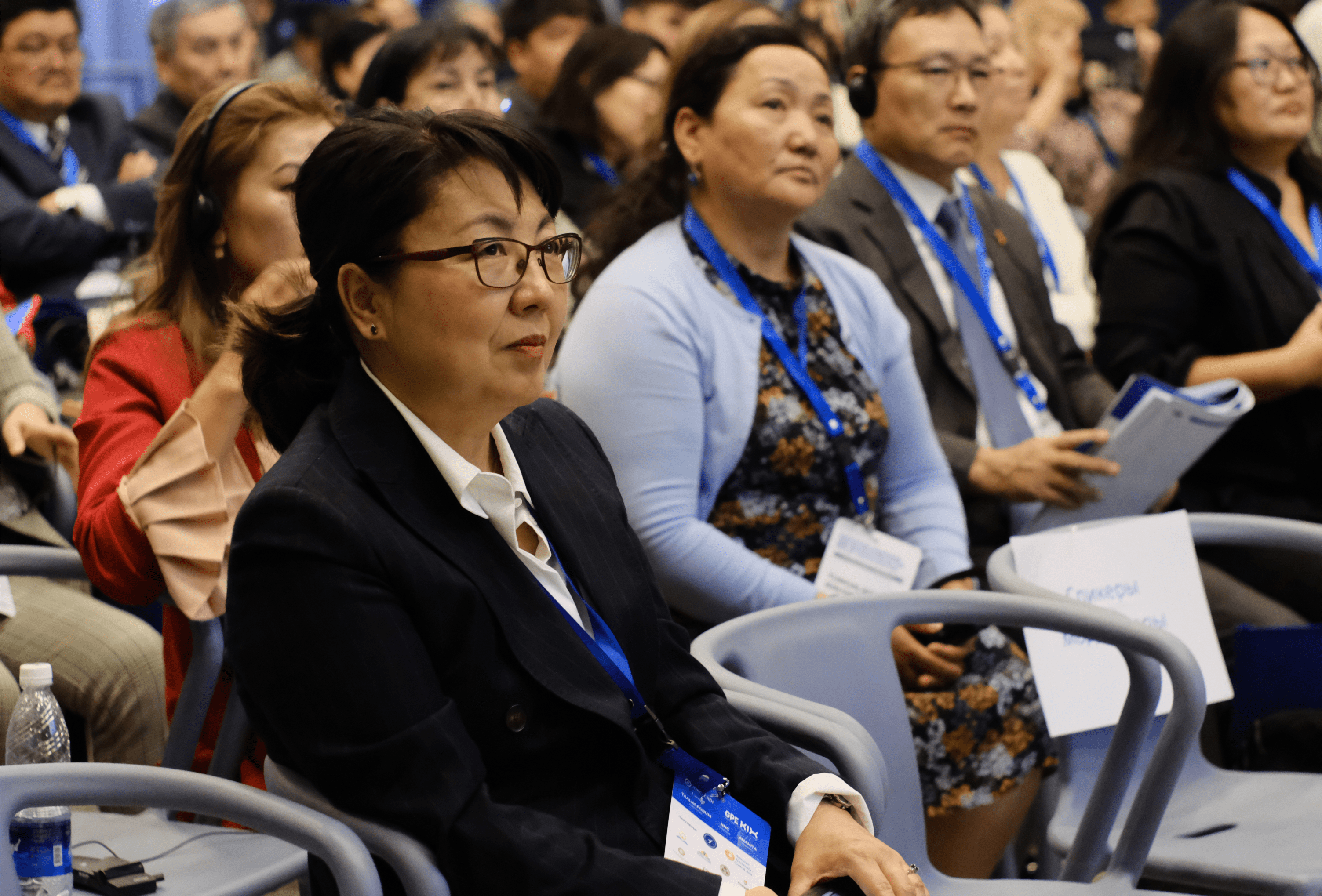
The agenda of the International conference discusses the issues of digital transformation in education, the formation of digital competencies of teachers, research in education, best practices and innovations. The conference program includes 8 thematic sessions, 35 speakers, 2 public lectures, training and workshops. 168 participants participate offline and 60 online. Participants represent countries such as Kazakhstan, Mongolia, Uzbekistan, Tajikistan, India, United Kingdom, Canada, Croatia, and Ecuador.
Gallery of digital educational initiatives involves 11 partner organizations that present their own digital educational products and initiatives. The Digital Pedagogy Lab held 11 practical sessions for 60 school teachers from all over Kyrgyzstan on digital tools on the use of electronic educational resources.
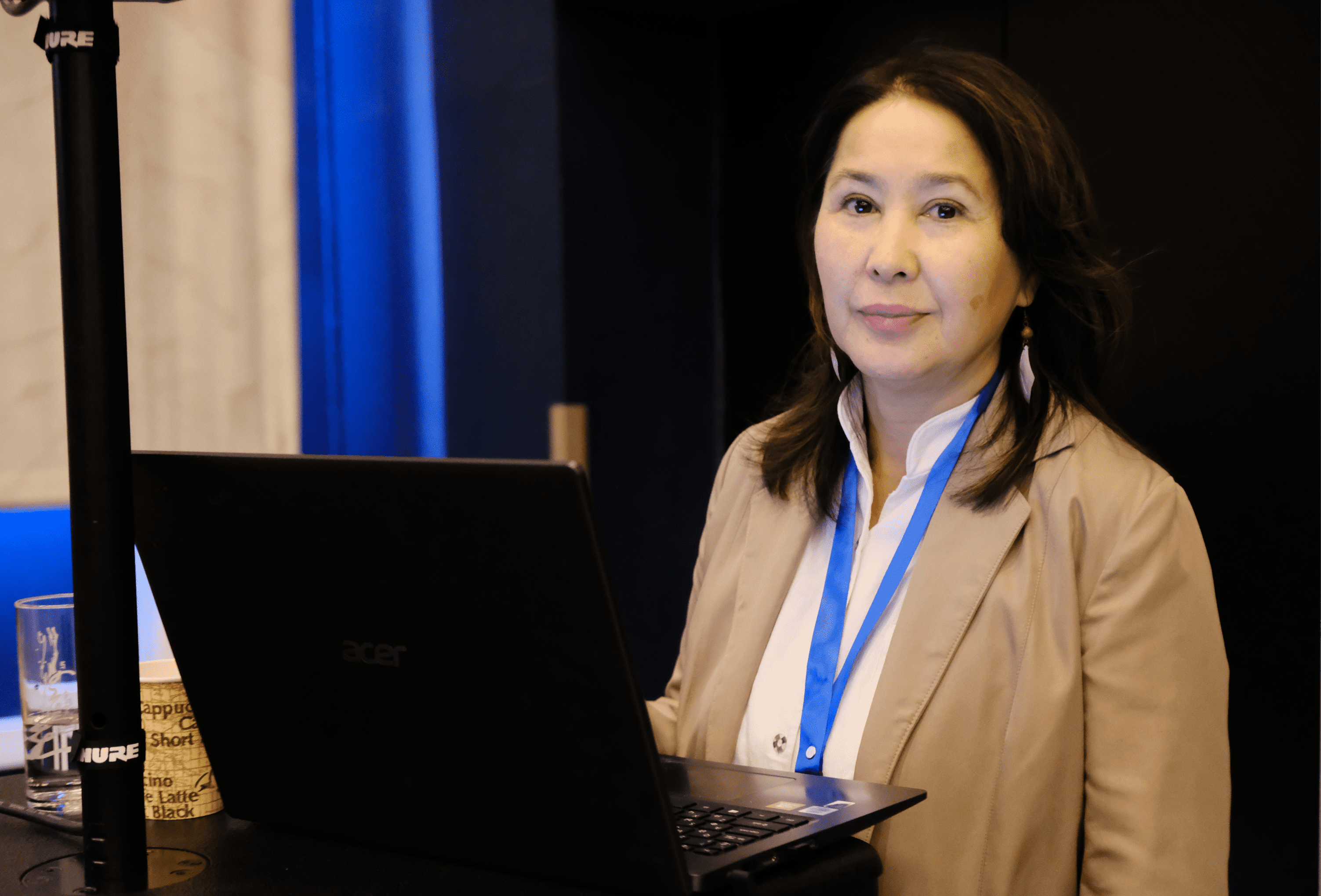
We appreciate the support of the Ministry of Education and Science of the Kyrgyz Republic, the American University of Central Asia, partners among government organizations, including the Kyrgyz Academy of Education, the Republican Institute for Advanced Teacher Training , research organizations, as well as public and private foundations such as MUGALIM online school for teachers, KG-Analytics intellectual foundation, Creative-Taalim school, Kyrgyz Internet community and others that focus their efforts on developing the education system, improving the quality of teachers' professional development, and other. We thank our participants from Mongolia, Tajikistan, Kazakhstan and other countries for their interest in the conference, interesting presentations reflecting their experience in digital transformation, professional development of teachers, and the results of their research.
INTERNATIONAL CONFERENCE 2022
International Conference Resolution
"Educational Strategies and Innovations in the Era of Digitalisation"
CONFERENCE PRESENTATIONS
At the conference, there were eight thematic sessions, and 35 speakers addressed the issues of digital transformation in education, the formation of digital competencies of teachers, research in education, discussion of best practices and innovation.
OCTOBER 4. PRE-CONFERENCE DAY
Daniyar Karabaev, Head and Senior Lecturer, Liberal Arts and Sciences; and Aizhamal Sarybaeva, Senior Lecturer, General Education Programs, AUCA. The training is intended for teachers and undergraduates.
Emma Sabzalieva, PhD., Head of Research and Foresight, UNESCO International Institute for Higher Education in Latin America and the Caribbean (UNESCO IESALC).
Angelina Popova, Ph.D., Director of the Center for Teaching, Learning and Technology, AUCA. The lecture will be interesting for teachers and undergraduates.
OCTOBER 5. DAY ONE
- Almazbek Beishenaliev, Minister of Education and Science of the Kyrgyz Republic
- Sangay Jamtsho, Senior Program Manager, KIX IDRC, Canadaа
- Nurgul Ukuyeva, Vice President for Academic Affairs, American University of Central Asia (AUCA)
Moderator: Zhanyl Bokonbayeva, Ph.D., Coordinator of the National KIX Committee in Kyrgyzstan
-
Ulanbek Mambetakunov, Doctor of Pedagogical Sciences, Professor, Deputy Minister of Education and Science of the Kyrgyz Republic "Transformation of Education in the Digital Ecosystem of Kyrgyzstan: Challenges and Strategies."
- Almazbek Toktomametov, Candidate of Pedagogical Sciences, Director of the Republican Institute for Advanced Studies and Retraining of Pedagogical Workers under the Ministry of Education and Science of the Kyrgyz Republic "Formation of ICT competence of teachers in the system of professional development in Kyrgyzstan"
-
Tsermaa Todgerel, Director of the Center for Educational Information Technologies, Ministry of Education and Science of Mongolia "Digital transformation of education in Mongolia"
- Alima Ibrasheva, Deputy Chairman of the Board for Academic Affairs of the National Center for Advanced Studies "Orleu", (Kazakhstan) "Updating approaches and content in the professional development of teachers in Kazakhstan"
Moderator: Chinara Omurkulova, Monitoring, Evaluation and Training Consultant, Taalim-Forum PF
- Aisulu Sulaimanova, National Education Officer, UNESCO Almaty Cluster Office for Kazakhstan, Kyrgyzstan, Tajikistan and Uzbekistan, "Strengthening ICT skills of teachers at policy and practice levels"
- Nurgul Toktogulova, Teaching and Learning Director, USAID Okuu Keremet! Project, "Digital Transformation: An Opportunity to Long-Term Improve the Quality of Professional Development for Primary School Teachers"
- Doranbek Alimbaev, IT Coordinator, WB MES KR, "Learning for the Future Project"
Duishon Shamatov, Ph.D., Associate Professor at the Graduate School of Education, Nazarbayev University
"Lessons learned from educational initiatives during the COVID-19 pandemic in Kyrgyzstan: what next?"
OCTOBER 6. DAY TWO
Moderator: Gulnara Botokanova, Doctor of Philosophy, Bishkek Humanities University
- Zholdoshbek Mokeshov, Head of the Department of Information Technology, Dosaaly Imanberdiev, Ph.D, Kyrgyz State University named after Arabaev "Analysis of ICT competencies in educational programs for students of pedagogical areas, implemented at the KSU named after Arabaev"
-
Aigul Abdukarimova, candidate of economic sciences, associate professor; Zhyldyz Asekova, Candidate of Pedagogical Sciences, Associate Professor, International University of Central Asia (IUCA) "The role of advanced professional education in the development of digital skills of school teachers (on the example of Kyrgyzstan)"
-
Kanyshai Nurdinova, Candidate of Philological Sciences, Associate Professor, Osh State University "Online learning: threats or new opportunities?"
-
Altynai Bekmyrzaeva, Lecturer, Bishkek State University named after K. Karasaev "Psychological and pedagogical foundations for the formation of communicative competence of future primary school teachers"
-
Tashtanbai Sartov, Candidate of Technical Sciences, Professor, Kyrgyz Technical University named after Razzakov "Analysis of educational programs of advanced training courses in the field of ICT competencies of teachers of the Kyrgyz Republic"
Moderator: Almagul Osmonova, Director of Taalim-Forum PF
-
Aziz Soltobaev, co-founder of NGO Internet Society Kyrgyz Chapter "Digital pedagogy and learning on the example of ililmbox"
-
Sanjaabadam Sed PhD., Academy secretary, Mongolian National Institute for Educational Researcher. "TV lessons and outcomes in school education in Mongolia during the pandemic"
-
Zhyldyz Abdyrakunova, Associate Professor, Bishkek State University "Innovative activity of the teacher in the education system"
-
Tatyana Lapshina, Candidate of Pedagogical Sciences, methodologist of educational programs of the Center “Ustatshakirt” "Umtul Drama Lab" - a new format of interaction
-
Madina Samakbaeva, Chairperson of the Techaim Public Foundation, official representative of Khan Academy in Kyrgyzstan, lecturer, AUCA Innovation College "Education accessible to everyone: open educational resource Khan Academy for Kyrgyzstan"
Moderator: Aisuluu Zhamangulova, co-founder of the MUGALIM online school
- Aisuluu Zhamangulova, co-founder of the online school "MUGALIM" "Formation of teacher's ICT competence on the experience of "Mugalim" courses"
- Asylbek Madaliev, founder of the educational center "Sanarip Mugalim" "Sanarip Mugalim": the experience of using digital technologies in training teachers from remote regions of Kyrgyzstan
- Kazybek Asylbekov, Methodologist of the Naryn District Education Department, "Decentralization of Education - a Requirement of Time"
- Turatbek kyzy Chinara, University of Central Asia (UCA), pedagogical designer, co-founder of "MUGALIM" "Methods of improving the effectiveness of learning in a digital environment"
Moderator Jyldyz Doolbekova, Candidate of Historical Sciences, Project Manager, Taalim-Forum
- Shodibeg Kodirov, National Coordinator of KIX in the Republic of Tajikistan "Access to Education in Tajikistan: Successes and Hidden Factors"
- Chinara Omurkulova, Monitoring and Evaluation Consultant "Gender inequality and its implications for the education of girls and boys in Kyrgyzstan, Mongolia and Tajikistan"
- Tungalagtuүa Khuukhenduu, Candidate of Educational Administration, Director of Nomadic Nature Conservation (NNC), member of National Committee of KIX in Mongolia "Qualitative Preliminary Findings: Case Studies from Mongolia"
- Abduvohid Safarov, Director of “Anahita”, Jovidsho Juraev, sociologist-researcher "Examples of Vulnerabilities in Access to Education: Challenges and Opportunities in Tajikistan"
Moderator: Emma Sabzalieva, PhD., Head of Research and Foresight, UNESCO International Institute for Higher Education in Latin America and the Caribbean (UNESCO IESALC).
-
Gulnara Kalikova, Chairman of the Supervisory Board of the Public Foundation "KG Analytics" "Research on education in Kyrgyzstan: who does it and who needs it?"
-
Nazik Imanbekova, Researcher, Program Coordinator, International Republican Institute; Cholpon Uzakbayeva co-founder, project manager of "School of Data" public foundation. "I want to go back to school!"
-
Gulnara Ibrayeva, Ph.D., PIL Research, Mehrigul Ablezova, Master of Sociology, AUCA/PIL Research "Structural and Regulatory Barriers to the Implementation of Quality DL in the Kyrgyz Republic, Mongolia and the Republic of Tajikistan: Qualitative Research Experience"
-
Iva Perković, Network of Education Policy Centers (NEPC). "Mapping Systemic Responses to Educational Challenges Related to the Pandemic" (online)
-
Battsetseg Semjaan PhD., Lecturer, Mongolian National University of Education .
"Education research during COVID-19: situation in Mongolia" (online)
Moderator: Duishon Shamatov, Ph.D., Associate Professor of GSNU Nazarbayev University
Issues for discussion:
-
Digital teacher: what competencies should he/she have?
- What is the role of a school teacher in the era of digitalization in education?
-
What skills and abilities of the student's personality need to be formed?
DIGITAL PEDAGOGY LAB
60 school teachers from all over Kyrgyzstan had the opportunity to attend 11 practical sessions on pedagogical design, became familiar with useful resources and distance learning tools that are applicable to traditional and blended formats, participated in pedagogical and methodological reflection in an "open lecture" format, and exchanged experiences in a roundtable format.
THE TOPICS OF THE WORKSHOPS
GALLERY OF DIGITAL EDUCATIONAL INITIATIVES
In the gallery, various local and international organizations presented educational initiatives, projects, and products for building and developing digital competence among various groups, including teachers, students, parents, and school managers. The educational products and programs are designed to educate and deepen knowledge and skills in using ICTs.
About conference
Podcast. Internet Society Kyrgyz Chapter https://www.youtube.com/watch?v=Hc_g_GND8t4
Post release. Center for Educational Information Technologies, Ministry of Education and Science of Mongolia https://itc.edu.mn/?p=11157
Post release: Maral TV is an independent media outlet in Kyrgyzstan. https://maralfm.kg/archives/602341
Post release: American University of Central Asia. https://www.auca.kg/ru/auca_news/5302/
Press Release: American University of Central Asia https://www.auca.kg/ru/auca_news/5292/
Press Release. Ministry of Education and Science of the Kyrgyz Republic
https://edu.gov.kg/posts/879/?fbclid=IwAR2hYAdWYJotuNo2oI_mxRAgv0h8gU4kSGCLj5INIexCBO7QUEx9M_VlCNM
https://www.instagram.com/p/Ci2PemgIlaK/?utm_source=ig_web_copy_link
Press Release: “MUGALIM” ONLINE SCHOOL https://www.instagram.com/p/Ci2D_MzKFlq/?utm_source=ig_web_copy_link

